




THE CONSTRUCTION AND REAL ESTATE SECTOR’S MOVERS AND SHAKERS WERE RECOGNISED AT THE 2025 EDITION OF THE BPME AWARDS
10 - 13 November 2025 / Dhahran Expo, KSA

z Make connections, expand your network and relationships, generate leads, elevate sales, grow your footprint with endless opportunities.
z Reach your target audience, engage with industry professionals, influencers, decision makers and highlight your products and services Explore the industry of construction equipment and commercial vehicles building the kingdom




Onto the next one, with the ME
Welcome to a new edition of Big Project Middle East, dear readers. With the 15th edition of the Big Project Middle East Awards (BPME Awards) out of the way, the team and I are already well into planning for our next few events, including our next awards program. Congratulations again to all those that were shortlisted and took home an award on the night!
The third edition of the ME Digital Construction Awards (ME DC Awards) is scheduled to take place in Dubai on 26 June, and I can reveal that the website will be open to receive nominations by the end of March.
I can also reveal that we’re updating the nomination process to match what was rolled out for the BPME Awards in January of this year – our goal remains to attract nominations from a broader spectrum of companies and individuals, simplify the nomination process and make it easier for you to highlight excellence (without the need of a slick marketing team).
The eagerness to nominate for the ME DC Awards that many of you have already demonstrated (even before the BPME Awards had concluded) is brilliant because it signifies just how important technology has become to the built environment in recent years. Eight years ago - when I’d first joined the construction division - it was obvious that many looked at technology (BIM, AR, VR etc.) as an 'option', and I can even recall stories where people were pushing for the adoption of technology but were shot-down, as it was seen as an unnecessary expense. Times have certainly changed and this is one of the main reasons the BPME team made the decision to launch the ME DC Awards. As always, I look forward to receiving your nominations.

Jason Saundalkar HEAD OF CONTENT
10 The Briefing
Arada awards $165mn contract to build the first phase of CBD
20 The Big Picture
A wrap-up of the biggest international construction news stories for the month
24 Market Report
Sharjah's residential and industrial real estate markets continued to surge in 2024 amid strong economic growth says Savills Middle East



46 Project Profile Committed to Sustainable and Smart Living
Priyanka Raina speaks to Object 1's Tatiana Tonu about EVERGR1N House, where sustainability, smart technology, and biophilic design will coexist in perfect harmony



56 Comment
The application and use of EPCMs is growing across different industries and sectors says Reed Smith's Christopher Edwards
Comment
Saudi Arabia is not merely preserving its traditions - it is reimagining how the world connects with them writes ACCIONA Living & Culture's Carla Prat Perxachs
68 Final Update
Al Hamra in handover phase of Al Hamra Marina Residences project
GROUP
MANAGING DIRECTOR Raz Islam
DIRECTOR OF FINANCE & BUSINESS OPERATIONS Shiyas Kareem
PUBLISHING DIRECTOR Andy Pitois
EDITORIAL
HEAD OF CONTENT Jason Saundalkar
ASSOCIATE EDITOR Priyanka Raina
ADVERTISING
SALES DIRECTOR Arif Bari
STUDIO
ART DIRECTOR Simon Cobon
GRAPHIC DESIGNER Percival Manalaysay
PHOTOGRAPHER Maksym Poriechkin
CIRCULATION & PRODUCTION
DIRECTOR OF MARKETING & MEDIA OPERATIONS
Phinson Mathew George
PRODUCTION & IT SPECIALIST Jarris Pedroso
MARKETING
MARKETING & EVENTS EXECUTIVE Lakshmy Manoj
SOCIAL MEDIA EXECUTIVE Franzil Dias
WEB DEVELOPMENT
SENIOR DIGITAL MANAGER Abdul Baeis
WEB DEVELOPER Umair Khan
FOUNDER Dominic De Sousa (1959-2015)
raz.islam@cpitrademedia.com
shiyas.kareem@cpitrademedia.com andy.pitois@cpitrademedia.com
jason.s@cpitrademedia.com priyanka.raina@cpitrademedia.com
arif.bari@cpitrademedia.com
simon.cobon@cpitrademedia.com percival.manalaysay@cpitrademedia.com maksym.poriechkin@cpitrademedia.com
phinson.george@cpitrademedia.com jarris.pedroso@cpitrademedia.com
lakshmy.manoj@cpitrademedia.com franzil.dias@cpitrademedia.com
abdul.baeis@cpitrademedia.com umair.khan@cpitrademedia.com
When you have finished with this magazine, please recycle it
The publisher of this magazine has made every effort to ensure the content is accurate on the date of publication. The opinions and views expressed in the articles do not necessarily reflect the publisher and editor. The published material, adverts, editorials and all other content are published in good faith. No part of this publication or any part of the contents thereof may be
© Copyright 2025. All rights reserved.

@meconstructionn
MEConstructionNews
me-construction-news

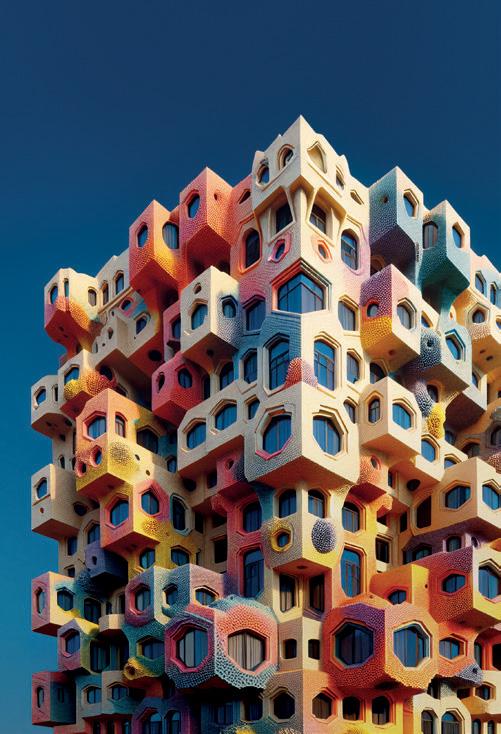





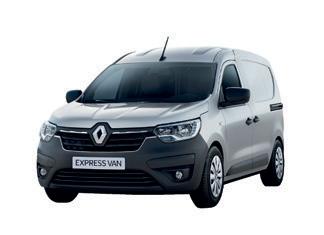

CONSTRUCTION
New mixed-use project for Healthcare City Phase 2

PROPERTY
BEYOND Developments launches third signature project
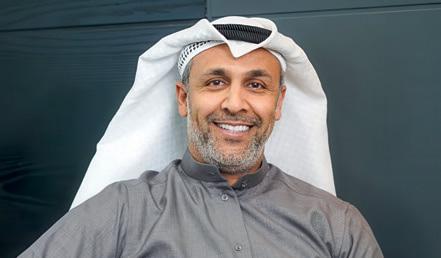
CONSTRUCTION
GJ Properties announces $1.08bn investment in 2025 and 2026

PROPERTY
Elemental launches and aims to re-imagine modern living in the UAE

INFRASTRUCTURE
RTA signs major infrastructure agreement

INTERVIEW: Raising the bar

INTERVIEW: Building the Kingdom’s Future

EXPERTS: Achieving Net Zero is a Middle Eastern imperative
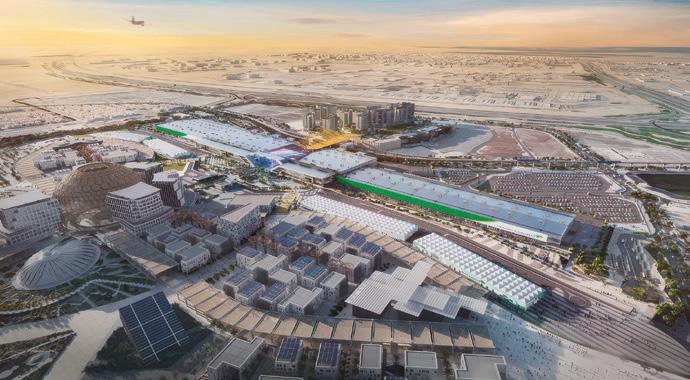




CONSTRUCTION
Khansaheb appointed as main contractor for Dubai Exhibition Centre expansion
The entire development is expected to be completed in 2031. Phase One is set for completion by 2026, expanding DEC’s capacity to 140,000sqm, nearly 2.5 times its current size of 58,000sqm.
FINANCE
Financing for Wynn Al Marjan Island Completed
In the low-rise portion of the building, the concrete and steel structures is combined 70% complete. Exterior facades and interior fit out have commenced
CONSTRUCTION
Project awards in Kuwait saw 44% increase in 2024
Of the total project awards, the majority (around 50%) went to the construction sector, with the Public Authority of Housing Welfare making progress on various housing projects
PROPERTY
Red Sea Global introduces Red Sea Residences
The residential brand aims to set new benchmarks by offering elevated residences designed by renowned architects and interior designers
CONSTRUCTION
Dubai Holding Asset Management
unveils Nad Al Sheba Mall
The mall is set to offer a curated selection of over 100 stores spanning fitness, retail, entertainment, F&B, healthcare, and supermarkets
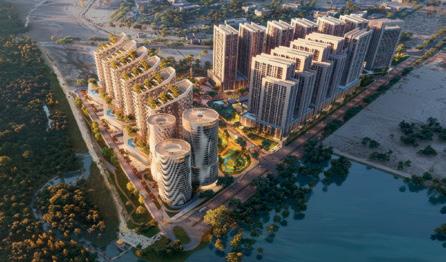

SUSTAINABILITY
RAK launches new sustainability initiatives



Arada awards $165mn contract to build the first phase of CBD
The business park’s full master plan features 40 office blocks, employeefriendly elements and landscaped ‘green spine’
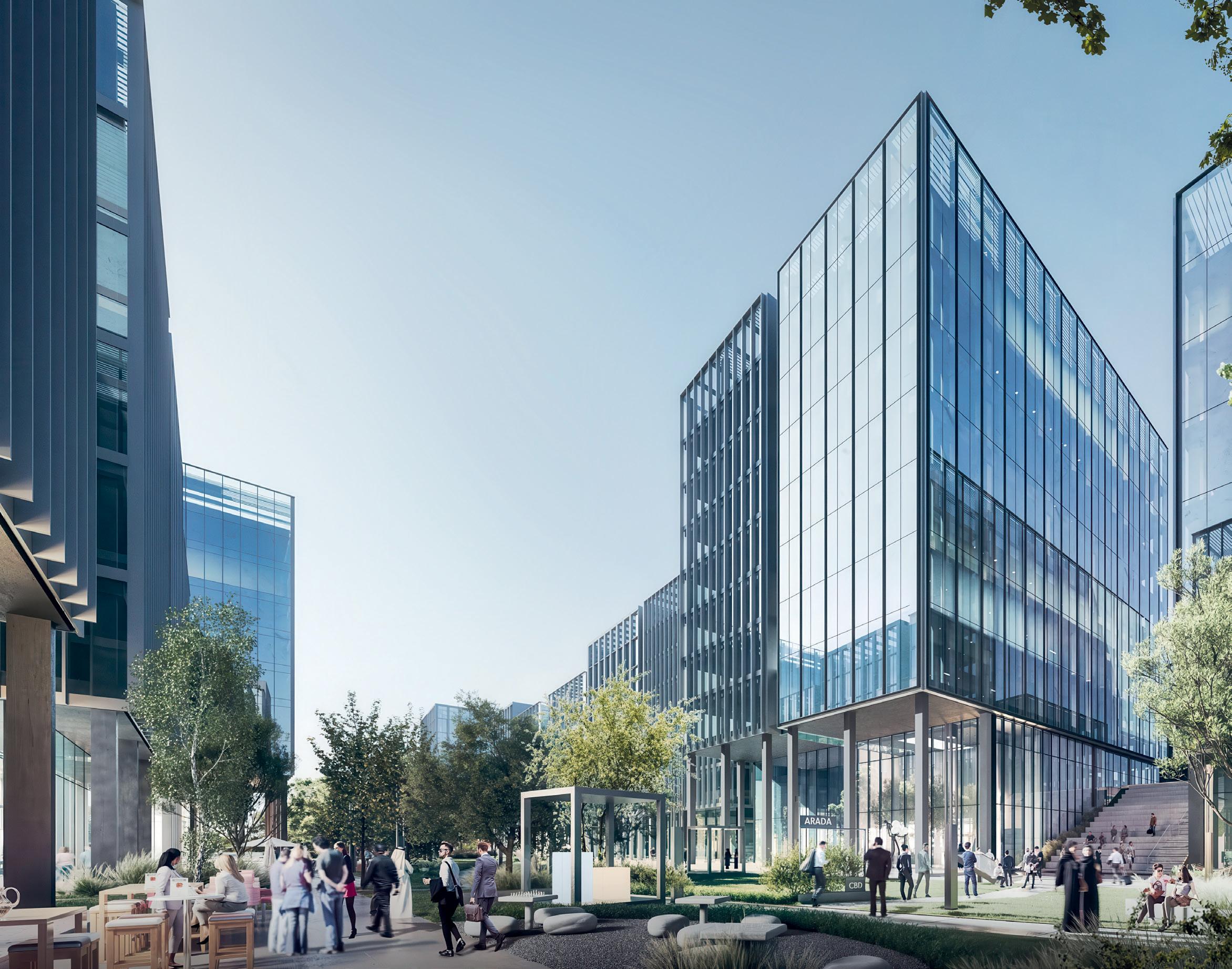
In total, the cluster will feature 812,000sqft of Grade A leasable space, as well as 1,666 parking spaces, 76,000sqft of landscaped green space, and 26,500sqft of retail space.

Arada has awarded a contract valued at US $165mn to build the first phase of the Arada Central Business District (CBD). Billed as the ‘commercial centre for Sharjah’, the CBD will take shape in the developer’s $9.52bn Aljada mega project.
The contract for construction has been awarded to Modern Building Contracting Company (MBCC). Works are expected to begin on the first cluster of Arada CBD immediately, with completion and handover scheduled for the first quarter of 2027.
In total, the cluster will feature 812,000sqft of Grade A leasable space, as well as 1,666 parking spaces, 76,000sqft of landscaped green space, and 26,500sqft of retail space. Each office also benefits from smart technology as part of Aljada’s overall smart city programme, employing next-generation solutions for everything from waste and traffic management to the circular economy and smart lighting.
The eight smart blocks included in the first phase include Arada’s headquarters, a nine-floor building that will introduce a new workplace for the master developer’s 1,500 staff. Arada’s headquarters contains extensive facilities including an accessible roof for events, an amphitheatre, ground floor café and staff restaurant. A grand atrium that reaches from the ground floor to the roof will connect all of Arada’s departments both visually and physically, said a statement from the developer.
“Since the launch of Arada CBD, we’ve seen strong investor demand for commercial space within this impressive business park, in line with the overall performance of the sector in the UAE. With its contemporary
urban architecture, facilities designed to enable and inspire workforces and excellent connectivity in close proximity to Sheikh Mohammed bin Zayed Road, international airports in both Sharjah and Dubai and the upcoming Etihad Rail station, Arada CBD is set to play a leading role in Sharjah’s future economy,” said Ahmed Alkhoshaibi, Group CEO of Arada.
The signature feature of Arada CBD is the ‘green spine,’ a forest park that runs the length of the district, featuring shaded walkways, an amphitheatre, and green rooftop terraces on most buildings. It also includes a variety of cafés, dining venues, and retail spaces, complemented by extensive parking.
In total, the 40 smart buildings in Arada CBD incorporate prime leasable space, setting a new standard for sustainability and connectivity. Arada is aiming for all buildings in Arada CBD to achieve LEED, WiredScore and SmartScore certification when the district is completed, in a first for the Sharjah market. LEED is a globally recognised green building rating system, while WiredScore and SmartScore are internationally recognised standards for digital connectivity and smart buildings.
Around 30% of Aljada’s 25,000 homes are now completed, alongside entertainment, retail, educational, and sporting attractions and amenities, including the SABIS International School–Aljada, the Wellfit Madar flagship gym, the Zad food truck park, Aljada Skate Park, and East Boulevard, the tree-lined avenue filled with shopping and dining experiences.
Aljada is Sharjah’s largest project, transforming the Emirate with its residential districts and hospitality,

The signature feature of Arada CBD is the ‘green spine,’ a forest park that runs the length of the district, featuring shaded walkways, an amphitheatre, and green rooftop terraces on most buildings.
entertainment, sports, education and healthcare facilities—all set within a walkable, green community.
The developer also announced that it sold out all four phases at its Masaar 2 project just three hours after the forested master community was launched for sale. Prospective customers are said to have begun queuing outside Arada’s sales centres from 2am onwards and by 12pm, all 2,000 homes with a total valuation of $1.5bn had been spoken for.
Masaar 2 follows in the footsteps of the Masaar megaproject in the Suyoh district of Sharjah. Spanning 10.5m sqft and featuring woodlands, natureinspired architecture and world-class amenities, Masaar 2 contains 2,000 contemporary homes, ranging in size from two-bedroom townhouses to fivebedroom villas, the developer outlined.
Residents of Masaar 2 will enjoy a variety of premium amenities, including a spectacular swimmable forest lagoon with waterfall, the standout feature of the master plan. Other amenities include sports and fitness facilities, a scenic woodland jogging track, an adventure trail, a community mosque and an outdoor cinema, all designed within a serene and exclusive landscape that contains 40,000 trees, it added.
Construction of Masaar 2 will commence before the end of the
2025. The first homes are scheduled for completion by the end of 2027, and the full community with all its amenities will be completed by 2028, the developer explained.
“The original Masaar has been one of the UAE’s most transformative communities, seamlessly blending a forested landscape with an urban master plan and it is no surprise to see the exceptional level of interest in Masaar 2, which also reflects the impressive strength of the Sharjah market, and the wider interest in the UAE as an exceptional investment destination overall. With Masaar 2, we are again reinforcing Arada’s commitment to delivering highquality, people-centric communities that enhance residents’ wellbeing,” said His Royal Highness Prince Khaled bin Alwaleed bin Talal, Executive Vice Chairman of Arada.
65+ Codes, Specifications, Guides, and Reports
16+ Educational Publications and Documents
33+
University On-Demand Courses
25+ Symposium Volumes
Gain immediate online access to 200+ ACI resources on concrete repair, rehabilitation, and more with integration of the ACI PLUS Platform: concrete.org/repairportal
The residential section will include luxury one-, twoand three-bedroom apartments, while an ultra-luxury mall will occupy the retail zone
play area, a cinema, a restaurant and coffee shop, and a supermarket.
Approaching the top of the tower, there will be ultra luxury penthouses enjoying exclusive access to all amenities. Separate lobbies will serve the residences and the penthouse units. The project, seen as a historic milestone for Azizi, will be unveiled at a ceremony in the Coca Cola Arena, Dubai.
UAE-based Azizi Developments has announced the sales launch for its new landmark, Burj Azizi, which is set to become the world’s second tallest tower, standing at 725m high.
Scheduled for completion by 2028, the 131+ storey building will feature residential, hotel, retail and entertainment spaces; the residential section will include luxury one-, two- and three-bedroom apartments, while an ultra-luxury mall, that aims to host many high-end fashion brands, will occupy the retail zone.
For every 20 floors of residences, a dedicated amenity floor is planned, consisting of swimming pools with sauna and steam room, a fully fitted gym and yoga centre, a spa, a games room including billiards, chess and table tennis, a business hub, a kids’
The unveiling will be followed by the formal global sales launch, taking place in several major cities around the world, including Dubai (Conrad Hotel), Hong Kong (The Peninsula), London (The Dorchester), Mumbai (JW Marriott Juhu), Singapore (Marina Bay Sands), Sydney (Four Seasons Hotel) and Tokyo (Palace Hotel).
Founder and Chairman Mirwais Azizi said, “In Dubai and cities around the world, new projects come up every day. But projects like Burj Azizi happen only once in a generation.
SKYSCRAPER
Scheduled for completion by 2028, the 131+ storey building will feature residential, hotel, retail and entertainment spaces.


I feel overjoyed today that we celebrate Burj Azizi’s journey from conceptualisation to launch. Burj Azizi has been a dream of mine for many years. It has been a tough challenge, having taken much tireless work by experts from around the world. But I am happy to announce that the dream is now on the path to realisation.”
“The importance of Burj Azizi is not just in it is record-setting height or its quality of design and construction, but also in the fact that it is being built in Dubai, a city that is today the number one leader in the world in engineering and architecture. It this
city of marvelous buildings, Burj Azizi will be a new milestone in innovation and workmanship. Its location on the Sheikh Zayed Road, named after the UAE’s founding father, is a key attraction, germane to the Burj Azizi idea as a legacy for Dubai,” he added.
Burj Azizi will boast an all-suite seven-star hotel, inspired by seven cultural themes, Arabic, Chinese, Persian, Indian, Turkish, French and Russian. The hotel will feature culturally-styled restaurants for each of the national themes, in addition to an authentic Emirati restaurant.
Among the world records set by Burj Azizi will be the highest observation deck on level 130, the highest hotel lobby on level 111, the highest nightclub on level 126, the highest restaurant on level 122, and the highest hotel room on level 118. At
the top, the building will also house a special museum that will showcase the chronology of the building’s evolution, recognising personalities involved through multimedia exhibits, including photo, video and graphics, the developer said.
“I extend my deepest gratitude to His Highness Sheikh Mohammed bin Rashid Al Maktoum, Vice President and Prime Minister of the UAE and Ruler of Dubai, for his visionary leadership, and to the Dubai authorities for their invaluable support in making this groundbreaking project possible. Burj Azizi is not just a structure; it is a tribute to the emirate’s ever-growing prominence on the global stage. We are honored to play a role in forming this city’s legacy, one that will prevail for all generations to come,” concluded Azizi.
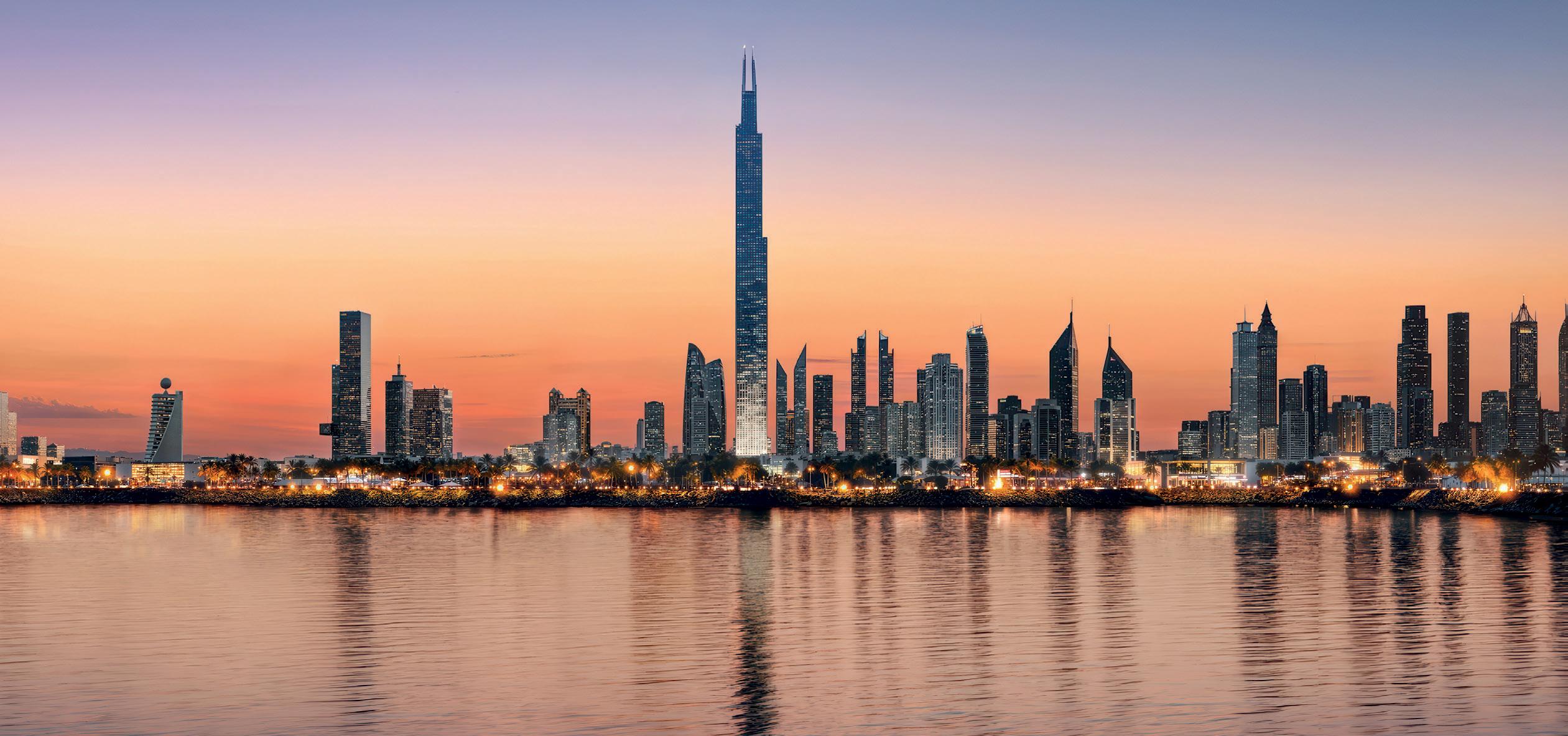



The firm says it has pioneered new materials that deliver optimal acoustic, thermal and fire performance as it ramps capabilities to deliver nearly 1,900 rooms annually
Modular construction specialist, LINQ, has said it has invested in ramping up its production capabilities, and is now capable of delivering nearly 1,900 fully fit-out luxury rooms per year. The move is in response to growing demand for hotel room stock in the GCC, and calls for the construction industry to embrace new and innovative ways to construct hotels in the most rapid, efficient, and cost-effective manner.
LINQ, which is the modular construction arm of UAE-based ALEC, is the first company to have secured a modular construction license from the Dubai Municipality to pioneer G+6 buildings. The firm said it is poised to be the leading modular construction partner to regional resorts, boutique hotels and luxury serviced apartments. Critically, by producing its ‘plug-and-play’ three- to five-star hotel rooms entirely offsite within the


GROWING DEMAND
Over 400,000 new hotel rooms will be needed across the GCC in the coming years, in line with mandates to diversify their economies.
tightly controlled and highly optimised settings of its expansive production facility in the Dubai, the company is able to target a remarkably low material wastage – estimated by the Waste & Resources Action Program (WRAP) to be up to as much as up to 90% less than traditional construction techniques, said a statement from the company.
“When talking about 400,000 new hotel rooms being built over the next six years, every fraction counts. So, the efficiencies made possible by modular construction techniques quickly cascade to offer tremendous benefit. Paired with the potential for enhanced quality, and speed of delivery – made possible by
factory-controlled production – this paradigm has the potential to play a significant role in meeting the GCC’s unprecedented demand for hotel room stock,” said Graham Petty, Operations Manager at LINQ.
Through 2024, LINQ demonstrated the feasibility and benefits of modular construction for the hospitality sector by successfully manufacturing and installing 218 serviced apartments at Sindalah, the iconic island destination in the region. Key to the success of this project was the firm’s work in pioneering sustainable materials tailored to enhance efficiency, durability, and sustainability, the statement explained. Petty continued, “We’re challenging misconceptions around build quality and acoustic performance that relate to dry walling and other traditional techniques. By introducing a lightweight cellular concrete infill to the regional market, we can offer rooms
with industry-benchmarked acoustic, thermal and fire performance.”
To further inform the market around this new construction paradigm, LINQ has developed a demo unit for a fivestar hotel room that will be showcased at the upcoming Project Control Expo in the UAE. Constructed with a 50mm thick lightweight concrete floor, luxury joinery, and natural marble, this demo unit also includes the DigiValet standalone guest room management system, the company explained.
“We’re demonstrating that modular rooms can be every bit as high-quality, luxurious, and feature packed as their traditionally built counterparts. With global leading hospitality chains now signing on to adopt this approach for their properties in the UAE and Saudi Arabia, we’re at a critical inflection point. At LINQ, we’re primed for the opportunity and are excited to see this segment go from strength to strength,” concluded Petty.
Consultancy Mott MacDonald has appointed a new CEO and President of its North American operations –Dean Radeloff.
Radeloff joined Mott MacDonald in 2022 as Regional Development Manager for North America, and has since significantly contributed to the business’ growth in the US and Canada.
He forged deeper relationships with clients in priority growth areas of transit and underground infrastructure, energy and water.

Engineering firm AECOM and architect Isherwood + Ellis have revealed designs for a new hospital.
Construction is expected to take five years and cost $473.61mn, with overall development worth $815.7mn.
In addition to architecture, AECOM is providing NEC project management, civil, structural, interior design, and landscape architectural services on the project. GRAHAM-BAM Healthcare Partnership (GBHP) has been appointed to deliver the new children’s hospital as the main contractor.

AtkinsRéalis has appointed Richard Robinson as President – Asia, Middle East & Australia (AMEA) and Chris Ball as President – UK & Ireland.
Robinson will oversee the firm's expansion in AMEA, building on its presence through the delivery of infrastructure, transportation and clean energy programs. Chris Ball joins the Executive Committee and will be responsible for the UK & Ireland, with over 12,000 employees providing end-to-end engineering, program management and advisory services.

AMEA Power has announced the official groundbreaking of a 50MW solar photovoltaic (PV) project in the Ivory Coast. The US $60mn project is being financed by FMO and DEG, and will support the government’s goal of increasing the share of renewable energy in its electricity mix to 45% by 2030.
The Bondoukou Solar PV plant will generate 85GWh of clean energy annually, enough to power 358,000 households, while offsetting more than 52,000t of CO2 emissions.
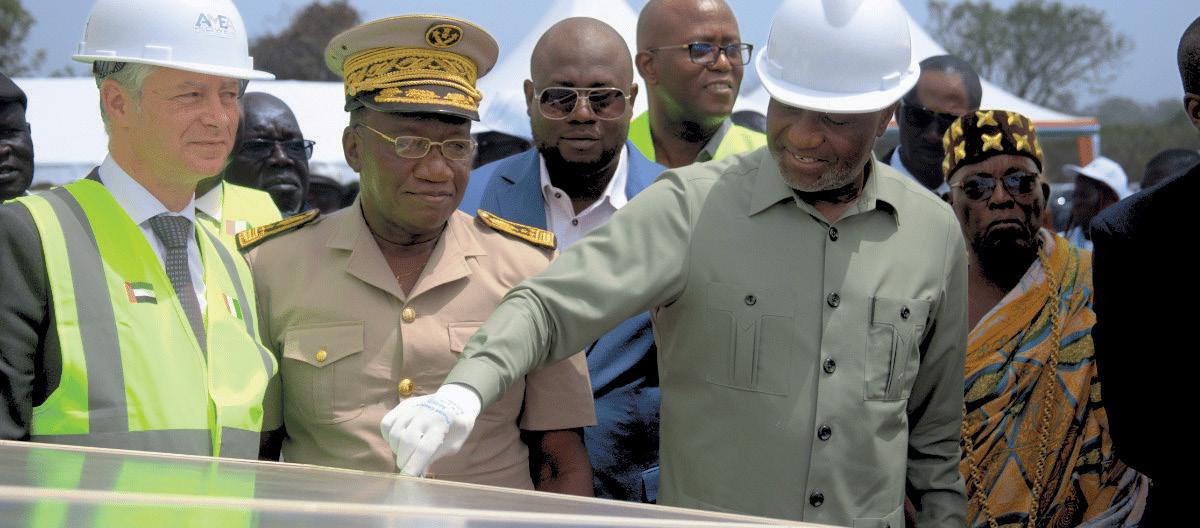
Kuwait’s project awards witnessed solid growth in 2024, jumping to US $6.5bn, up 44% over the previous year; its highest figure since 2017, according to a report by National Bank of Kuwait (NBK).
Of the total project awards, the majority (around 50%) went to the construction sector, with the Public Authority of Housing Welfare making progress on various housing projects, including the affordable housing project in Al Nayeem district. The power and water sector was then the second-largest, with nearly US $1.2bn in contract awards.

DataVolt and NEOM have announced that they have signed a US $5bn agreement to develop a 1.5GW data centre campus in NEOM’s under-development Oxagon industrial area.
The first 300MW phase of the site will reportedly go live in 2028, said the companies in a statement.
Oxagon is a reimagined industrial city in NEOM that promises to embed robotics, automation and artificial intelligence in its infrastructure, all powered by sustainable energy.
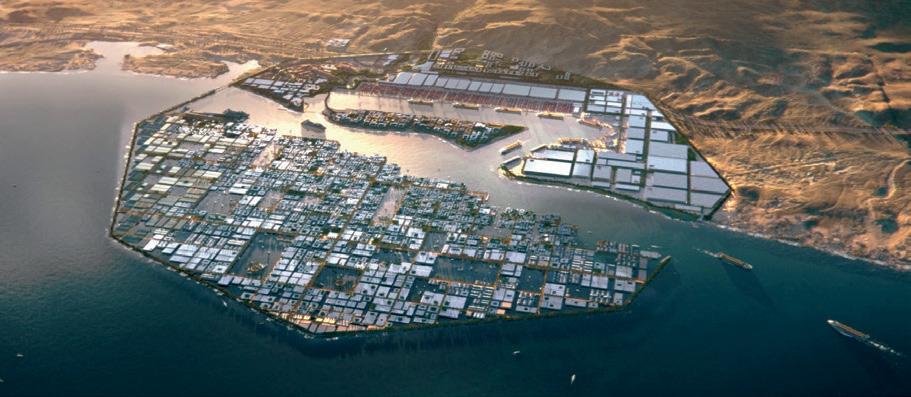

STRATEGIC PARTNER

PRESENTED BY
PRESENTED BY PRESENTED BY Complimentary Register Now Register for free and stay connected

Sharjah’s residential and industrial real estate markets continue to surge amid strong economic growth says Savills Middle East
Sharjah’s residential market is experiencing a surge in demand, largely driven by its substantial expatriate population, who constitute approximately 1.6m of its 1.8m residents. Many individuals are relocating from Dubai to Sharjah in search of more affordable housing options. Additionally, relaxed ownership regulations are attracting greater levels of foreign investment into Sharjah’s real estate sector. According to the Sharjah Real Estate Registration Department, the market saw a 48% increase in the value of transactions in 2024 compared with the same period in 2023.
Whilst this total figure was across all asset classes, growth was primarily driven by the residential market. The total value of these transactions reached US $10.8 billion, with the number of nationalities of investors rising to 120 from 103 in 2023.
UAE citizens continue to lead the way, followed by non-Arab/GCC nationals, highlighting the dramatic change in buyer demographics since the 2022 law change allowing non-Arab expatriates to have freehold title. Major developers have noted an increase in Asian buyers investing in the Sharjah market. In response, developers are strategically aligning their project
launches and marketing campaigns to cater to this evolving dynamic.
The transaction volumes were significantly driven by new launches from existing developers such as Alef and Arada, including projects like Masaar, Hayyan, Olfah and multiple launches in Aljada. Arada reported a 48% increase in sales during 2024, showcasing the strength of the market.
The residential market is also experiencing a shift in product offerings, with a focus on extensive landscaping and amenities to cater for the demand for sustainable and luxurious living. Key villa communities such as Sharjah Sustainable City, Hayyan, Masaar, Al Zahia, and Al Thuraya Island are driving transaction volumes in this space both in the off plan and secondary markets, reflecting strong investor interest.
The rental market in Sharjah has experienced a notable increase in rents, with areas like Al Majaz and Al Qasimiya recording rental growth of 21% and 22%, respectively. Hotspots such as Al Nahda, Al Tawoun, and Al Majaz are particularly attractive due to their strategic locations, proximity to Dubai, competitive pricing, and comprehensive amenities, making them ideal for those working in Dubai but seeking more affordable living options. While market rents are currently above all previous peaks, the announcement of the Sharjah Rental Index has generated optimism about potential rental controls. An index would enable greater transparency, benefiting both landlords and tenants as well as investors. The growing number of rent disputes seen across the city would also be mitigated, as parties
would be able to base rents in line with the calculator during rent reviews.
Fuelled by demand from growing Arab and Non-Arab investors and end users, we expect to see the residential sales market continue to flourish in 2025. Developers have already announced a strong pipeline of new project launches, and the entry of new developers into the market will further drive the expansion of the real estate sector. Rents are expected to continue rising due to the already high occupancy rates throughout the city.
Industrial Market Overview 2024 has seen further strengthening of Sharjah’s Industrial Real Estate Market. Building on steadily rising rents since 2021, average rents have increased circa 101% over the past four years. Rents in Emirates Industrial City
SHARJAH PRIME APARTMENT RENTS - 2024 (AED/ANNUM)
(EIC) and Al Saja’a have continued to increase in tandem, rising by 36.4% in 2024. This narrowed the gap with the average rates in Sharjah Industrial Areas 2-18 (SIA) which rose by 28.6%. Similarly, occupancy levels have risen, now averaging 95% across Sharjah.
Key projects such as MAG’s Logistic Park in Sharjah Industrial Area 18 and EIC’s warehouse project are pushing the limits of rental levels in the market. Handed over in Q1 2022, MAG’s Logistic Park launched at an average rate of AED 45-50/sqft, with new rentals now hitting AED 60/sqft. Such is the demand for warehousing space that landlords across the Emirate can now command significant premiums for any vacant space.
Initially fueled by small to medium trading and manufacturing companies, the market is now seeing increased interest from larger occupiers and investors looking to expand their operations. Higher rents and limited availability in Dubai and Abu Dhabi have also brought occupiers north, resulting in significant growth across the market.
Land rates have also increased. Notably, land prices in EIC have risen over 50% since 2020, with 2024
delivering strong year-on-year growth of 12.5%. Despite the rise in rental rates and capital values, the market for industrial space remains significantly undersupplied with the majority of new stock coming to market being developed by owner occupiers. With concerns over delays and rising project costs, there is a preference amongst many landowners to develop low-cost yards which yield higher returns in the short term.
This growth is attributed to several different factors, including positive economic growth, strong infrastructure, and a costeffective business environment.
The UAE’s GDP grew by 3.6% in the first half of 2024, with the non-oil sector growing by 4.4% in the same period. Non-oil sectors now contribute 75% of GDP, with transport and storage being the fastest growing industries. This expansion has been a key driver of demand for logistics in the UAE.
Clustering of sectors is evident within Sharjah’s market, including the continued demand from used car and auto parts companies driving rates in SIA 6 as well as the growth in furniture manufacturing and steel fabrication firms in Al Saja’a. Sharjah boasts a well-developed network of roads, seaports, and airports, facilitating the movement of goods and materials both across the UAE
and internationally. Sharjah Airport Authority reported unprecedented growth in cargo handling in 2024, with volumes increasing by a remarkable 38.6%, reaching 195,909t compared to 141,358t in 2023. Furthermore, the airport handled 14,035t through sea-air cargo operations, reinforcing its role as a key logistics hub. Compared to other major cities in the UAE, Sharjah offers more affordable industrial spaces and lower operating costs. This makes it an attractive option for businesses looking to establish and expand a presence in the region.
The rezoning of SIA 1 to Al Nahdha commercial district and resultant eviction of industrial tenants at the end of December 2024 added further pressure to Sharjah’s industrial supply throughout 2024, as tenants relocate to other industrial areas within Sharjah and absorbed some
of the already limited supply. These tenants are known to have paid significant premiums for space in order to secure new premises.
The e-commerce boom and the growing demand for efficient supply chains have led to a significant increase in demand for modern warehouses. These facilities are equipped with high clearance, efficient loading docks, and good power availability.
Whilst historically occupiers focused on proximity to the centre of Sharjah, there has been a noticeable shift in focus to the ability to do business across the UAE. This limits the need to be close to Sharjah’s CBD and makes developments on good arterial roads more attractive.
While Sharjah offers a competitive advantage, it faces competition from other industrial hubs and the lack of
available space is pushing occupiers to move to other markets such as Umm Al Quwain and Ajman. The development of good quality stock is crucial to not only catering to expanding local businesses but also attracting new tenants with significant space requirements.
Savills has witnessed an increase in 20,000sqft plus requirements.
The Sharjah industrial real estate market is poised for continued growth and new market developments. With limited supply expected in 2025, prices are likely to continue increasing and new benchmarks will be set.
The government’s commitment to infrastructure, coupled with the increasing demand for industrial space, is expected to drive further expansion. As Sharjah continues to attract foreign investment and diversify its economy, the industrial sector is likely to play a crucial role in its future success.

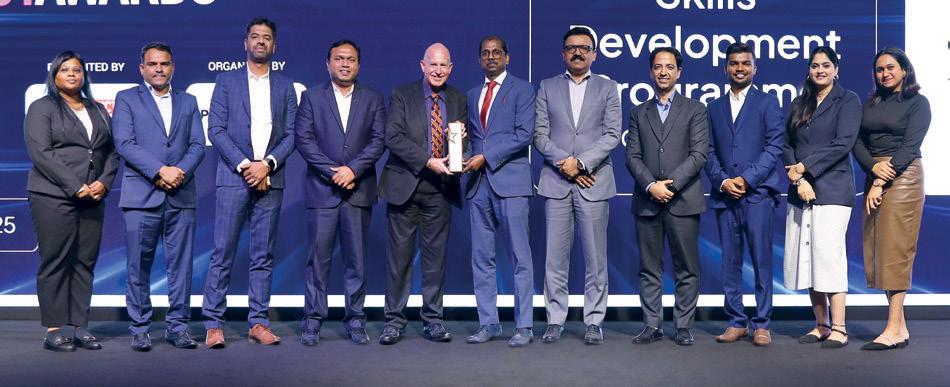





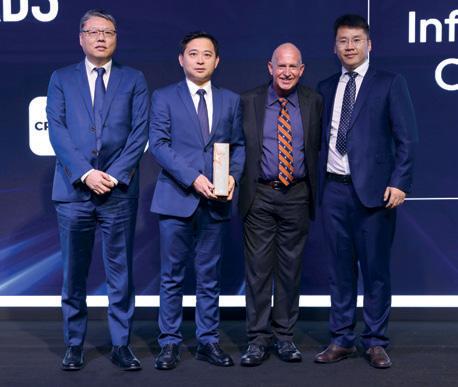












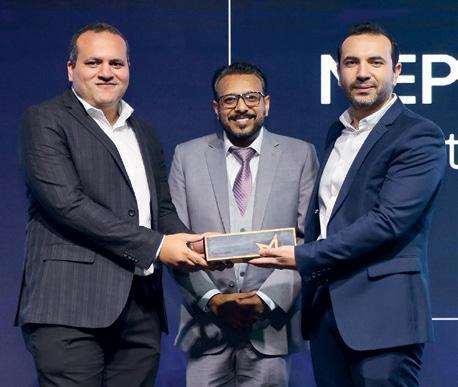
The

15th edition of the Big Project Middle East Awards was held on 29 January and recognised excellence from across the GCC's construction and real estate sectors
The 2025 edition of the Big Project Middle East Awards (BPME Awards) was held on 29 January at the prestigious Ritz Carlton JBR in Dubai. The 15th edition of the annual awards ceremony recognised excellence across 24 distinct categories, recognising excellence from across the Middle East region.
As in previous years, the awards attracted nominations from a variety of industry stakeholders including government organisations, developers, consultants, contractors and suppliers. Nominations were broken up into five categories including: Individual Awards; Sustainability Awards; Developer Awards; Contractor Awards and Project Awards.
Nearly 160 nominations were submitted across the awards’ 31 categories when nominations closed in mid-December 2024. Following the closure of nominations, two rounds of elimination were initiated by the Big Project Middle East (BPME) editorial team. The first round was conducted internally by the brand’s editorial team and nominations that stood up to the first round of
scrutiny were then passed onto an independent panel of six judges. The judges were given a couple of weeks to review the nominations, with an in-person meeting taking place in early January 2025 at the H Hotel Dubai.
The judges for the 2025 BPME Awards were:
• Damir Jaksic from KEO International Consultants
• Dana Darwish from WSP
• Fernando Freitas from Omnium International
• Ghina Yamak from Zutari
• Jason Saundalkar, Big Project Middle East
• Louise Rodrigues, Aquila
• Tamara Bajic, AESG
Following the close of the judges’ meeting, a shortlist was announced on BPME’s online home, Middle East Construction News (MECN), two weeks ahead of the gala dinner ceremony. Those that made the shortlist received commendations on the night of the awards, while winners in each category received a newly designed trophy to mark the event’s 15-year milestone.
“The BPME Awards are a recognised institution in the Middle East and following an unbroken run of 15-years, the awards program continues to attract participation from a broad array of built environment stakeholders from across the region. This year we had a solid mix of participants and competition was fierce, which required the editorial team and the panel of judges to give it their all when it came to judging each nomination. I offer my heartfelt thanks to my team and the judges for putting in so many hours over the holiday season to ensure that we had a shortlist that represented the best-of-the-best and, that only the strongest of entries were ultimately recognised and awarded a trophy,” said Jason Saundalkar, Head of Content at Big Project Middle East
“With the 2025 edition of the BPME Awards out the way, the editorial team is already hard at work on the brand’s conference program for the year, and will soon be announcing the 2025 edition of the ME Digital Construction Awards,” added Saundalkar.


NOMINEES
Maha Babiker – Graphite
Meera Al Blooshi – Parsons
Suchith Govindappa – Sobha Constructions
WINNER
Meera Al Blooshi – Parsons
A total of seven nominations were submitted for this category, and after two rounds of scrutiny, just three were deemed worthy of being on the shortlist. Ultimately, Parsons’ Meera Al Blooshi was announced as the first winner on the night of the BPME Awards.
“I'm filled with gratitude for being recognised in this way by my peers and colleagues. The innovative spirit cultivated by my team and the dynamic culture at Parsons has played a pivotal role in shaping the professional I am today. The blend of passion for my craft and a nurturing environment has empowered me to constantly imagine what's next and drive progress for both my projects and clients,” said Meera Al Blooshi, Sustainability and Environmental Specialist at Parsons.
NOMINEES
Chris George – Sobha Constructions
Karim Elnabawy Balbaa – SEVEN
Maxwell Connop – AtkinsRéalis
WINNER
Karim Elnabawy Balbaa – SEVEN
Seven nominations were submitted, with the panel of judges choosing to recognise just three on the shortlist. Following a tally of votes, Saudi Entertainment Ventures’ Karim Elnabawy Balbaa walked away with the majority of the first choice votes and was thus the winner in this category.
“Winning this award is a great honour, but more than that, it’s a reflection of the incredible people I’ve had the privilege to mentor. I’m grateful for the opportunity to contribute to their journeys and to the organisations I’ve worked with in the past few years.
If this recognition inspires even one more person to mentor and help others grow, then it has truly served its purpose,” said Karim Elnabawy Balbaa, Senior Manager, Sustainability & ESG at Saudi Entertainment Ventures.


NOMINEES
Beirut Office Design Team – LASCO JV SSG
Equinix 3.1 Data Centre Team – McLaren Construction
Team Sobha Reserve – Sobha Constructions
WINNER
Equinix 3.1 Data Centre Team – McLaren Construction
Eight nominations were submitted to this category, with five making it through to the second round of eliminations. The panel of judges then selected three entries for the shortlist, with McLaren Construction’
Equinix 3.1 Data Centre Team standing out as the clear winner, thanks to a sterling nomination on what was a complex project with demanding requirements.
“The McLaren Construction team is extremely proud to have successfully secured all three categories shortlisted and delighted that our clients shared the successful awards evening with us. These awards clearly demonstrate the can-do attitude that our teams adopt with a clear focus on exceeding expectations for all stakeholders,” said Mark Stephen Hunt, Managing Director at McLaren Construction.
NOMINEES
Anita Nouri – Green Growth Planning Consultancy
Fatma Elfeki – Graphite
Johanna Staples – AtkinsRéalis
Muneeswari Velusamy – Sobha Constructions
WINNER
Johanna Staples – AtkinsRéalis
Six nominations were submitted, and following debate, a shortlist of four were compiled for the category, with AtkinsRéalis' Johanna Staples taking the prize.
“I'm deeply honoured to receive this award. This recognition is not just a personal achievement but a testament to the incredible potential and contributions of women in our industry. As I celebrate this award, I want to emphasise the critical need for more female role models in construction and engineering in the region. By showcasing the successes and opportunities for women in this field, we can inspire and attract the next generation of talented women to join us,” commented Johanna Staples, Advisory Services Lead - Regional Director Middle East & Africa at AtkinsRéalis.


NOMINEES
Ahmed El-Adalany – The Arab Contractors
Joseph Charles – Pinnacle Interiors
Mariam Azmy – Innovo Group
Senthil Kumar Parasuraman – Sobha Constructions
WINNER
Joseph Charles – Pinnacle Interiors
Ten nominations were submitted, with just five making it to the second round of eliminations. Following a tally of votes in the second round of voting, Joseph Charles emerged as the Executive of the Year.
“I am truly humbled to be recognised as the Executive of the Year. This acknowledgment reflects the dedication and commitment we have invested in crafting a passionate team that designs and builds exceptional spaces. I extend my gratitude to all our clients, partners, and the phenomenal Pinnacle team members for their unwavering support and collaboration,” said Joseph Charles, CEO and Managing Director at Pinnacle Interiors.
NOMINEES
ACCIONA Innovo Group
The Arab Contractors (Osman Ahmed Osman & Co.)
WINNER
Innovo Group
Following intense debate in this hotly contested and important category, just three nominations made it through to the shortlist on the night of the Awards. Thanks to a top drawer nomination, Innovo Group clinched the lion’s share of the first and second choice votes, making it the winner in the category.
“I feel immensely proud of this incredible achievement. At Innovo, sustainability is one of our core pillars and with each project we undertake, we aim to be environmentally responsible and conscious of our impact. This accomplishment solidifies all our efforts, motivating us to innovate and create a more safe and sustainable built environment,” said Mariam Azmy, Chief People Office at Innovo.



NOMINEES
KAFD Fire Station – Parsons
Sharjah Sustainable City
ZāZEN Gardens & ZāZEN Ivy – ZāZEN Properties
WINNER
KAFD Fire Station – Parsons
Sustainable projects are becoming more common in the Middle East and Africa region, as evidenced by the fact that no less than nine nominations were submitted to this category. Following both rounds of scrutiny by the judges, a shortlist of just three projects was produced. As the KAFD Fire Station by Parsons managed to secure the most first choice votes, it walked away with the win.
“I am incredibly proud of our team's dedication and the way we applied our sustainable expertise to this unique project. Our commitment to fostering genuine partnerships with all stakeholders played a key role in its success. This award highlights Parsons’ leadership in both fast-track project management and sustainable practices,” said Robert Marinelli, Program Director – KAFD.
WINNER
Aurora Real Estate Development
Two nominations were submitted to this category, however the judges decided that only one nomination was worthy of recognition so no shortlist was compiled, with Aurora Real Estate Development being recognised as the winner.
The developer stood out for its demonstrated commitment to investors and homeowners and focus on resident well-being and sustainability, through the incorporation of energy-efficient glazing that is 25% more efficient, low-VOC paints, and use of shaded and heat-reflective roofing with a solar reflective index of 85. Through the use of efficient HVAC, LED lighting and smart heat recovery systems, its project will also benefit from 30% less water consumption, and 24.95% less energy consumption compared to similar projects.
“We take pride in creating high-quality developments that make a positive impact on communities, and this recognition motivates us to keep pushing the boundaries of excellence. We’re grateful to our partners, clients, and supporters who have been part of this journey,” said Sanjeev Bagh, Development Associate at Aurora Real Estate Development.


Sobha Institute of Construction Excellence –Sobha Constructions NOMINEES
WINNER
Sobha Institute of Construction Excellence –Sobha Constructions
Four nominations made it through to the second round of eliminations, however the judges chose to recognise just two nominations. Thanks to a sterling nomination, the Sobha Institute of Construction Excellence secured the winning nod for the second year running.
“I am truly honored and excited to receive the award for the second consecutive time on behalf of Sobha Constructions. This achievement reflects the unwavering commitment of our leadership team toward skill development and their vision for transforming the construction industry. I am grateful for the opportunity to contribute to the skilling space and to give back to society,” expressed, Srinivasan Radhakrishnan, General Manager, Technical Training at Sobha Constructions.
NOMINEES
ALEC FITOUT
DEPA
HTS Interior Design
Pinnacle Interiors
WINNER
DEPA
Eight nominations were submitted by companies across the Middle East and North Africa region, and following two rounds of elimination and intensive debate, DEPA managed to secure the most votes and was recognised as the winner.
The firm’s nomination showcased a strong performance, with projects delivered in 43 countries to date and, in 2024, it also saw the successful completion of several high profile projects including the St. Regis Hotel, Red Sea; the Ritz Carlton Reserve Hotel, Red Sea, the refurbishment of Emirates Palace and Sheraton Mall of the Emirates.
The nomination also highlighted the contractor had completed 311,000sqm worth of fit-out works and achieved over US $270mn in revenue.


NOMINEES
ALEMCO
The Arab Contractors (Osman Ahmed Osman & Co.)
LASCO JV SSG
WINNER
LASCO JV SSG
Quality MEP works are critical to a building's operations and require a skilled contractor to deliver the works on time and budget, particularly on complex projects. Seven nominations were submitted to this category, with four making it through to the second round of eliminations.
Following a tally of the judges' votes, LASCO JV SSG emerged as the MEP Contractor of the Year for 2025.
“We are incredibly proud to be recognised and honored with this prestigious award for the second consecutive year. This achievement is a true testament to our unwavering dedication, excellence, and the hard work of our exceptional team. We extend our deepest gratitude to everyone who contributed to this success,” said Michael Ghanem, Managing Partner at LASCO JV SSG.
NOMINEES
China State Construction Engineering Corporation ME
Orascom Construction
Sobha Constructions
WINNER
China State Construction Engineering Corporation ME
Six nominations were submitted to this category, with three making it through to the second round of eliminations.
From there, the judges chose to shortlist just two, with China State Construction Engineering Corporation ME scoring the win, thanks to a comprehensive nomination.
“Winning Infrastructure Contractor of the Year is a great honor and a reflection of my team's hard work and dedication. It highlights our success in delivering complex projects in the Middle East, while maintaining high standards of quality and innovation. This recognition motivates us to continue driving strategic growth and excellence in future projects,” said Cheng Qianli, General Manager of CSCEC Middle East Civil & Infrastructure Branch and General Manager CSCEC Middle East KSA Branch.


NOMINEES
ECC Fit Out & Construction
Pinnacle Interiors
WINNER
ECC Fit Out & Construction
Four nominations were submitted, however only three progressed through to the second round where the judges chose to shortlist just two companies. On tallying the first and second choice votes, ECC Fit Out & Construction was the obvious winner.
“This award is a testament to ECC Fit-Out & Construction’s relentless pursuit of excellence, driven by its team's passion and expertise in delivering tailored solutions that exceed client expectations. Since ECC Fit-Out’s inception in 2014 as a division of the larger ECC Group, ECC Fit-Out has built a strong reputation for on-time project delivery, innovation, and clientfocused service. We remain committed to setting new industry benchmarks and contributing to the UAE’s everevolving construction landscape,” says Joe Cashman, Operations Manager at ECC Fit-Out & Construction.
NOMINEES
Engineering Contracting Company (ECC)
LASCO JV SSG
McLaren Construction
WINNER
McLaren Construction
Three nominations made it through to the second round of eliminations, with the panel of judges deciding that all three submissions were worthy of recognition on the shortlist. On tallying all the votes, McLaren Construction emerged as the 2025 Mid-sized Contractor of the Year.
The contractor has a diverse body of work and its nomination clearly highlighted a focus on exceeding client demands, evidenced through its inclusion of positive client testimonials and the awarding of three additional projects from the same client.
The judges also took note of the management team’s commitment to staff in terms of welfare and long-term retention, HSE on jobsites, and the active focus on healthy lifestyles and mental health.
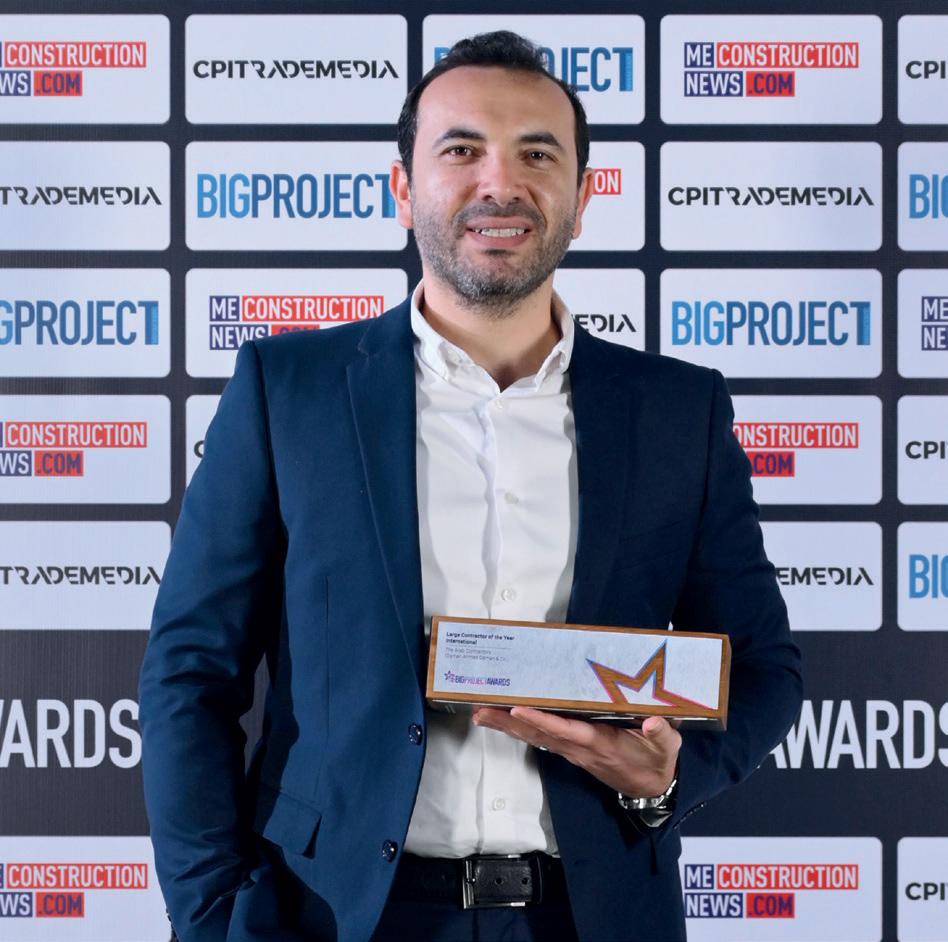

NOMINEES
ALEC Engineering & Contracting
Innovo Group
The Arab Contractors (Osman Ahmed Osman & Co.)
WINNER (INTERNATIONAL)
The Arab Contractors (Osman Ahmed Osman & Co.)
WINNER (GCC)
ALEC Engineering & Contracting
Ten nominations were submitted, with eight making it through to the second round of eliminations. Two companies emerged as frontrunners, scoring multiple first and second-choice votes. Here, the BPME team decided to recognise two winners as both submitted strong nominations highlighting their capabilities.
The Arab Contractors has undertaken transformational mega projects across the MEA region including-the third largest dam in Africa; a waste water treatment plant in Egypt that has been recognised with four Guinness World Records, in addition to undertaking multiple
restorations of historic projects, such as the Egyptian Parliament building and several of the country’s palaces.
“Winning this award is a testament to the hard work, dedication, and collaboration of our entire team in Arab Contractors. It’s incredibly rewarding to see our company efforts recognised on such a prestigious platform, and it motivates us to continue striving for excellence,” said, Yassein Ahmed, Technical Manager, Arab Contractors UAE Branch.
ALEC Engineering & Contracting is a UAE home grown entity boasting over 800 delivered projects across market segments, over 250 recent project awards, has a turnover of over $2 billion, and is on track to double in size in the next five years. It is committed to high performance project delivery, safety, sustainability, quality, and innovation.
“I’m incredibly honored to receive the award on behalf of ALEC. This recognition is a testament to the dedication and hard work of our entire group, as well as our unwavering commitment to innovation and modern methods of construction. We are transforming the industry and setting new benchmarks for excellence. This award reassures us that we are on the right path, motivating us to keep driving change and reinforcing our vision to become the leading innovative construction group in the region,” said Sabyasachi Jana, Snr. Innovation Lead, ALEC Engineering & Contracting.





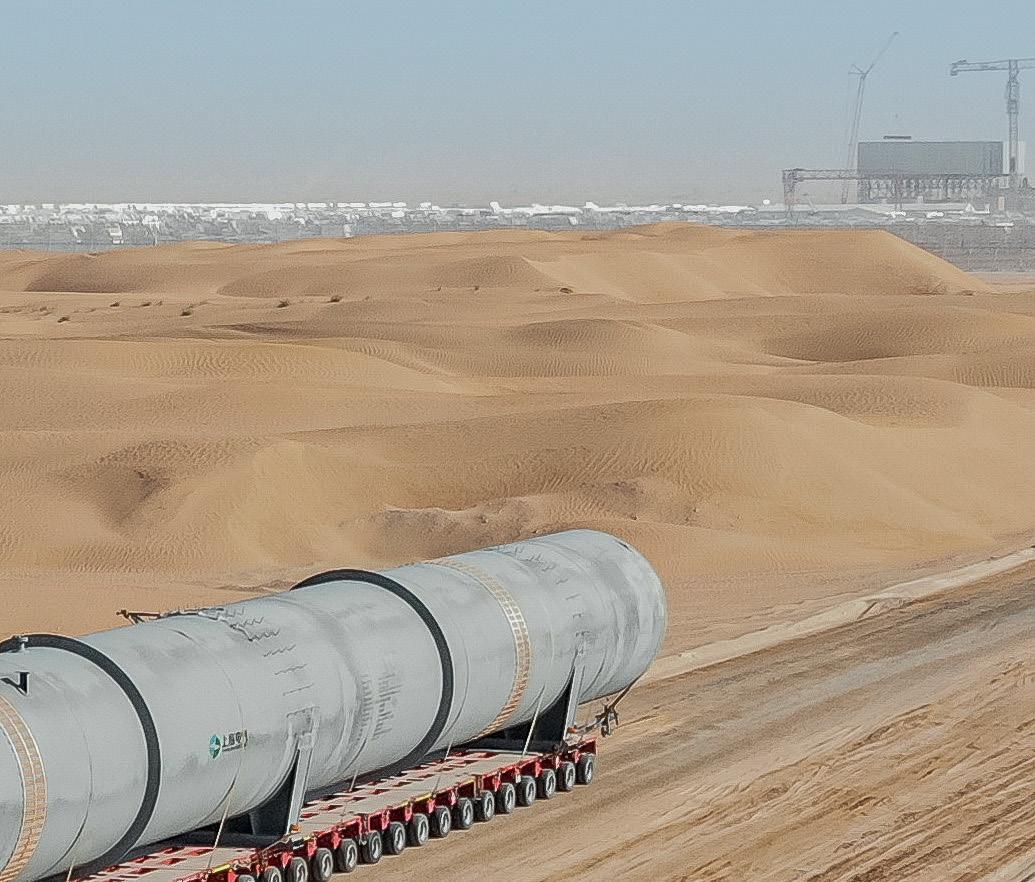





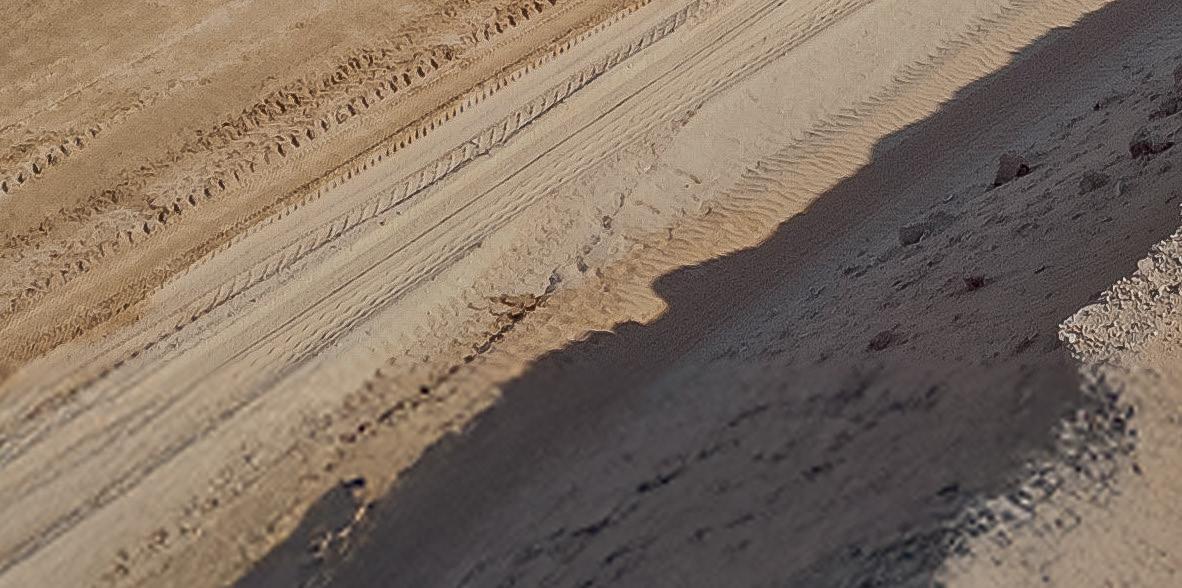


















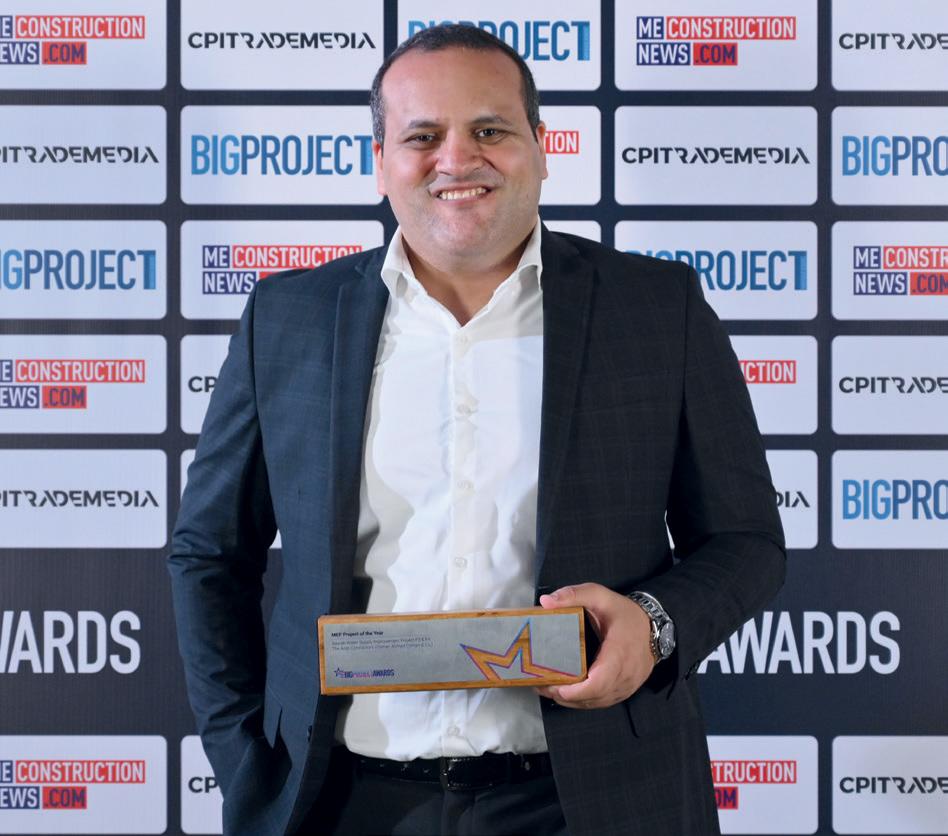
One Za’abeel Tower – DEPA NOMINEES
WINNER
One Za’abeel Tower – DEPA
Five nominations progressed through the first round of voting, and after scrutiny, only two were shortlisted on the night of the BPME Awards. While both projects made a strong case for recognition, One Za’abeel Tower by DEPA was chosen as the winner.
The judges noted that the project stands as a complex and multi-faceted example of iconic architecture, engineering and fit-out in the UAE, and required the use of several stakeholders to deliver on the demanding requirements of the developer.
DEPA’s nomination highlighted its commitment to delivering word-class fit-out by paying close attention to workmanship, budget and time requirements, the choice of materials, and by recommending alternative solutions when a challenge was faced.
NOMINEES
Basrah Water Supply Improvement Project P3 & P4 –
The Arab Contractors (Osman Ahmed Osman & Co.)
Creek Vista Grande – Sobha Constructions
WTB Skylight 1 & 2 – LASCO JV SSG
WINNER
Basrah Water Supply Improvement Project P3 & P4 –The Arab Contractors (Osman Ahmed Osman & Co.)
Six nominations were submitted for consideration, with four making it through to the second round of eliminations. After deliberation, three nominations were chosen as the strongest for the shortlist, with the winning nod going to the Basrah Water Supply Improvement Project P3 & P4.
From an impact standpoint, the project is largest of its type in Iraq and is instrumental in addressing a water crisis in the Basrah and Hartha regions of the country.
“Winning the MEP Project of the Year award is incredibly rewarding. It highlights the innovation and precision we put into every project, and we’re grateful for the recognition of our team’s expertise and collaborative efforts." said Yassein Ahmed, Technical Manager, Arab Contractors UAE Branch.


WINNER
Rove Hotel, Al Marjan Island – China State Construction Engineering Corporation ME
Two nominations were submitted for consideration, and after review, the panel of judges decided that only one nomination was worthy of recognition - the Rove Hotel, Al Marjan Island submitted by China State Construction Engineering Corporation ME.
The project relied on the prefabrication of MEP and toilet PODs off-site, in a controlled environment, which ran along main construction works at the jobsite. The approach provided the client with an affordable solution that offered high quality, ahead of time delivery and better on-site safety. From a sustainability standpoint, wastage was also minimised making the project truly worthy of the award.
“Winning the award is a great honor and a reflection of my team's hard work and dedication. It highlights our success in delivering complex projects, while maintaining high standards of quality and innovation. This recognition motivates us to continue driving strategic growth and excellence in future projects,” said Cheng Qianli, General Manager of CSCEC Middle East Civil & Infrastructure Branch and General Manager CSCEC Middle East KSA Branch.
NOMINEES
Sheraton Hotel, Mall of the Emirates – DEPA
WINNER
HuQQa Shisha Lounge and Turkish Restaurant –Pinnacle Interiors
Six nominations were submitted and following the first round of eliminations, four remained. Following the judges meeting, three nominations were chosen for the shortlist, with the HuQQa Shisha Lounge and Turkish Restaurant by Pinnacle Interiors walking away with the win.
“I’m absolutely elated, this project is a personal favorite of mine. Hats off to our exceptional team for executing such a complex design in just 60 days – this was a true challenge in a bustling mall environment that required meticulous planning and round the clock dedication. This recognition reinforces the passion and expertise that went into making this a standout achievement," said Linda Clark, Marketing Manager, Pinnacle Interiors.


NOMINEES
Al Khobar 2 SWRO – ACCIONA
Basrah Water Supply Improvement Project P3 & P4 –The Arab Contractors (Osman Ahmed Osman & Co.)
SFAX Desalination Plant – Orascom Construction
WINNER
Al Khobar 2 SWRO – ACCIONA
Four projects were submitted for consideration, all of which made it through to the second round of eliminations. Following deliberation, a shortlist of three was put forward with ACCIONA’s Al Khobar 2 SWRO project taking the prize.
“We are incredibly honored to receive the Project of the Year – Water award at the Big Project ME Awards. This recognition is a testament to our team's dedication, innovation, and commitment to delivering high-quality, sustainable water solutions. It reinforces our mission to push the boundaries of excellence in the industry, and we are grateful for the trust our clients and partners have placed in us,” said Jesús Corral, ACCIONA KSA Construction Director, Water.
NOMINEES
Diriyah Gate Infrastructure Construction General Contractor – Area B – China State Construction Engineering Corporation ME
Greater Cairo Monorail – The Arab Contractors
Lusail Plaza Infrastructure, LRT Station, Public Car Park & Landscape – Parsons
WINNER
Greater Cairo Monorail – The Arab Contractors
Nine nominations were submitted and after both rounds of judging, just three were deemed worthy to be shortlisted, with the Greater Cairo Monorail project by The Arab Contractors garnering the most votes.
The project broke new ground as a pioneering green transportation initiative that runs off clean energy, and will connect a number of key urban areas in Egypt, thus relieving pressure on existing road based infrastructure - a truly transformational project.
“Winning this award motivates us to continue striving for excellence,” said, Yassein Ahmed, Technical Manager, Arab Contractors UAE Branch.


NOMINEES
Qetaifan Island Project – AtkinsRéalis
Restoration of Revolutionary Command Council Museum – The Arab Contractors
VISA Marassi Marina Hotel and Yacht Club –Orascom Construction
WINNER
Qetaifan Island Project – AtkinsRéalis
Four nominations were submitted and following two rounds of eliminations, a shortlist of three projects was produced with the Qetaifan Island Project securing the award.
The project comprises a 1.3m sqm footprint that blends cultural heritage with modern design. The project leveraged LOD300 detailed design and was delivered using a digital construction approach, using a BIM360 CDE that connected 220 users across the globe.
“The Qetaifan Island North project exemplifies our commitment to innovation and sustainability, setting new benchmarks in urban development and creating a vibrant, self-sustaining community,” said a spokesperson for AtkinsRéalis.
NOMINEES
6 Falak Media City – McLaren Construction
Pinnacle Interiors D3 Office – Pinnacle Interiors
WINNER
6 Falak Media City – McLaren Construction
Five nominations were submitted and after the second round of eliminations, just two were put forward for the shortlist, with 6 Falak Media City by McLaren Construction securing the win.
The project posed a number of issues for the contractor including: taking over an existing dilapidated structure that was partially complete and required significant work before the 2B+G+6 structure could be realised, a confined site area and therefore challenging logistics issues, and significant noise and time restrictions as a result of the surroundings being occupied by functional structures. The project was realised with over one million man hours without LTI, and a number of sustainable elements. The latter saw the structure achieve LEED Gold Certification rather than the originally intended design for LEED Silver, all of which made it worthy of the Project of the Year – Commercial award.


and is expected to boast 40% less energy consumption and 30% less water consumption compared to traditional projects.
Athlon Premium Villas – AtkinsRéalis
Crest Grande – Sobha Constructions
H Three by Aurora – ECC Group NOMINEES
Tilal Al Ghaf Phase A – Majid Al Futtaim WINNER (DESIGN)
Athlon Premium Villas – AtkinsRéalis
WINNER (DELIVERY)
Tilal Al Ghaf Phase A – Majid Al Futtaim
12 nominations were submitted and following internal debate and due to the number of quality nominations, the editorial team made the call to recognise two projects: one recognising design and the other for delivered work.
The Athlon Premium Villas project submitted by AtkinsRéalis aims to use smart home technologies to create an AI-driven adaptive living ecosystem, and incorporates holistic wellness-focused design that prioritises resident physical and mental well-being. The project was conceptualised with a significant focus on sustainable development and operation,
“This recognition reflects Aldar and AtkinsRéalis’ shared commitment to pushing the boundaries of sustainable luxury design. The Premium Villas at Athlon represent more than just a residential project – they are a testament to the vision of creating living spaces that harmonise cutting-edge technology, environmental responsibility, and exceptional design,” said the Athlon Premium Villas team.
The second project that was recognised was Tilal Al Ghaf Phase A by Majid Al Futtaim. Due for full completion in 2028, the project already boasts the country’s first Zero Positive Building, the region’s first Net-Positive Mosque, and employs innovative water management strategies and technology including greywater recycling.
“This recognition reaffirms our commitment to building future-proof communities that not only offer luxurious living but also promote sustainability and a healthier environment for our residents. The project blends resort-style luxury with a contemporary urban feel. With exceptional amenities, innovative architectural design, and meticulous attention to detail, every home is thoughtfully crafted with our residents in mind,” said Wassim Rabah, Managing Director Communities, Majid Al Futtaim Properties.



BIG PROJECT ME ’S PRIYANKA RAINA SPEAKS TO OBJECT 1’S TATIANA TONU ABOUT EVERGR1N HOUSE, WHERE SUSTAINABILITY, SMART TECHNOLOGY, AND BIOPHILIC DESIGN WILL COEXIST IN PERFECT HARMONY
Dubai is a fast-paced market for real estate development and is breaking new ground with its forward-thinking policies, groundbreaking projects, and emphasis on smart technologies and sustainability. In 2025, sustainability will become an even greater consideration for both developers and investors in the Dubai real estate landscape according to industry insiders.
Real estate projects in Dubai are now no longer defined merely by their design, fit-out and location, but also by their ability to meet global sustainability standards and requirements. This shift is shaping the types of developments entering the market, and there’s a growing focus on eco-friendly construction and urban design by new market entrants that also prioritises the health and wellbeing of residents.
HIGH-DEMAND
The overwhelming demand for EVERGR1N proves that homebuyers and investors are prioritising eco-friendly living spaces that offer both modern convenience and reduced environmental impact, the developer says.
Sustainable buildings offer several advantages, including lower maintenance costs, higher resale values, and the attraction of tenants willing to pay a premium for ecofriendly amenities. Moreover, the UAE government’s commitment to sustainability and its ambitious goals for reducing carbon emissions are expected to further enhance the appeal of sustainable real estate investments in Dubai.
Object 1, which is a part of the international TSZ Group, operates in Spain and the UAE and is said to be a collaborative union of minds, ideas, visions, strategies, experiences, and ambitions, dedicated to creating a new aesthetic urban environment that fosters life, work, and inspiration. With hundreds of specialists across four key areas - Development, Construction, Service, and Finance - Object 1 says that it brings expertise and dedication to its projects.
Recently, Big Project Middle East sat down with Tatiana Tonu, Managing Director of Object 1 to discuss the developer’s approach to sustainability, its plans for delivering its new Evergr1n HOUSE project, and the biophilic design elements that make the project unique.

IN FOCUS
Discussing Object 1’s goals and focus on sustainable urban living, and how the project’s strategic direction aligns with the UAE’s Green Agenda 2030, Tonu explains, “At Object 1, our vision for sustainable urban living revolves around creating environment that balances the demands of modern life with environmental responsibilities. The EVERGR1N House is a testament to that vision, combining advanced technology, energy efficient systems, and biophilic designs to create a harmonious living space. The strategic direction is rooted in the belief that urban development can coexist with nature and reduce its environmental impact.”
She continues, “In line with the UAE’s Green Agenda 2030, we aim to support the nation’s efforts to reduce carbon emissions, increase reliance on environmentfriendly raw materials and processes, and promote the establishment of green spaces across the built environment. The Green Agenda’s focus on achieving sustainability in all sectors including energy, water, and waste management, shapes our approach to development. Our upcoming projects are designed to meet these goals. We are dedicated to creating not only profitable ventures for our investors but also environmentally responsible spaces. EVERGR1N exemplifies our commitment to this ethos and serves as a steppingstone to even more ambitious and sustainable future projects. Our mission is to build not only for today but with a vision for future generations.”
When asked about how Object 1 distinguishes its projects in competitive real estate markets such as Dubai, Tonu responds, “EVERGR1N stands out in the market due to our unique blend of operational excellence, innovation,

and sustainability. In just two years, Object 1 has become a leading force in the construction industry, setting new benchmarks for quality, efficiency, and growth. Our primary differentiators include our forward-thinking approach, which integrates advanced technologies and superior materials to ensure that our projects are structurally sound, future-ready, and cost-effective.”
At Object 1, our vision for sustainable urban living revolves around creating environments that balance modern life with environmental responsibility, ensuring a harmonious future for generations to come.
“We tailor each project to our client’s specific needs, recognising that no two projects are the same. Additionally, sustainability is a key focus for us.
EVERGR1N incorporates energy-efficient systems, green materials, and environmentally friendly methods to reduce carbon footprints while enhancing building performance. Our customer-centric philosophy, characterised by transparent communication and proactive problem-solving, further ensures that we deliver unparalleled quality, foster long-term relationships, and consistently meet the unique needs of our clients.”

From an infinity pool and outdoor yoga spaces to a cinema and reflexology area, EVERGR1N House aims to offer resort-style living experiences focused on wellness, relaxation, and community engagement.
Aligning stakeholders across the project’s enter development cycle is crucial to ensuring a project is delivered in line with its original vision, while conforming to timelines and budgets. Pressed about how Object 1 ensured alignment amongst its stakeholders, Tonu says the firm takes a deeply collaborative and mission-driven approach.
She notes, “Our team is not just a collection of employees, but a group of like-minded individuals united under the leadership of our visionary founder, Egor Maslennikov. Every idea is discussed openly, with a shared commitment to achieving a common goal. This strong alignment has been key to our rapid growth, allowing us to enter and establish ourselves in a highly competitive industry within just two years. To maintain a smooth process from design to construction, we encourage continuous communication and strategic collaboration among all stakeholders.
Our core team works closely with partners, suppliers, and clients to ensure that every phase of development reflects our high standards and long-term vision.”
Talking about the response to the project, considering its emphasis on energy efficiency, smart technology, and biophilic design, Tonu shares, “The demand for units exceeded expectations, with the entire development selling out in just one month after its launch. This overwhelming success is a clear indicator of the growing interest from both homeowners and investors for properties that combine sustainability, smart technology, and biophilic design. As a result, we are actively preparing for the launch of our second EVERGR1N project, further building on the appeal of eco-friendly and innovative living spaces.”
“In addition to EVERGR1N, the EVERGR1N HOUSE project reflects the increasing demand for high-quality, sustainable homes. This development, designed with energy-efficient technologies and advanced smart home features, is to cater to investors and end-users seeking modern, environmentally conscious living spaces. The growing trend for smart, energy-efficient homes is evident as the global smart home market is projected to reach $537bn by 2030, and research shows 80% of real estate investors in the UAE prioritise sustainability.”




“Today's buyers, particularly in markets like Dubai, understand the long-term value that such innovations bring to residential projects, including enhanced quality of life and lower environmental impact. We are confident that both EVERGR1N and EVERGR1N HOUSE will continue to attract significant interest from those looking for homes that integrate sustainability with cutting-edge technology,” she adds.
EVERGR1N House is a testament to our commitment to sustainable urban living, seamlessly integrating advanced technology, energy-efficient systems, and biophilic design to create a harmonious environment.
Appetite for integrated technology
The appetite for smarter homes is growing in the region as technology integration can offer a number of benefits including convenience, peace of mind, energy efficiency, enhanced security and accessibility and much more.
Responding to a question about whether the integration of concepts such as the Internet-of-Things (IoT) will permeate the market or be limited to high-end homes only, Tonu states, “In EVERGR1N House, we have integrated advanced IoT-driven systems that allow residents to interact with and control various aspects of their home environment. These systems include smart thermostats, lighting that adjusts to occupancy and natural light levels, and advanced security systems that can be monitored remotely. The key goal of these systems is to enhance comfort while reducing energy consumption, contributing to both sustainability and a seamless living experience.”
Looking forward, we see smart home technology becoming a more common feature in residential offerings across Dubai. While it is currently more prevalent in high-end


developments, the increasing demand for energy-efficient and tech-driven solutions suggests that smart home systems will become standard across a broader range of properties. As the cost of IoT devices decreases and technology becomes more accessible, we expect smart homes to become mainstream, even in mid-range residential offerings, she explains.
Eco-friendly practices and sustainability
Sustainable development is a critical part of the journey towards Net Zero, and with regards to buildings and construction, it must pervade the enter lifecycle of the project from design to delivery to operations.
Asked to shed light on Object 1’s approach to longterm sustainability, Tonu outlines, “Object 1 has its own property management company, which will be responsible for managing, maintaining, and ensuring the seamless operation of all systems in accordance with established sustainability standards after the buildings are handed over. To ensure that our eco-friendly and smart systems continue to function efficiently, the dedicated team will provide regular maintenance, promptly addressing any potential issues and upholding the high standards set during development. This proactive approach guarantees that residents will continue to enjoy a seamless living experience well into the future.”
Our vision extends beyond just developing propertieswe are building communities that align with the UAE’s Green Agenda 2030, promoting a lifestyle that balances urban sophistication with nature, says Tonu.
In respect to water and energy consumption and conservation within their projects, Tonu highlights, “EVERGR1N HOUSE integrates a range of sustainability focused initiatives to manage water and energy consumption, aligning with the UAE’s Green Agenda 2030 to focus on eco-friendly designs and practices. The project incorporates smart home technologies, where IoT-driven systems are used for climate control, and lighting to optimise energy use. Additionally, biophilic architectural features were chosen as the ideal design element to use natural light and prompt a healthier lifestyle. Making this the ideal choice when focusing on sustainability and resident well-being.”
Tonu also says that the developer has prioritised the use of eco-friendly building materials and construction techniques to reduce the environmental impact of EVERGR1N HOUSE. “Sustainability is at the core of EVERGR1N House, and we have carefully selected eco-friendly building materials and construction techniques to minimise environmental

impact. Our project fully complies with Dubai’s stringent construction regulations, ensuring that every element aligns with green building standards,” she notes.
“We prioritise high-quality, environmentally-friendly finishing materials, sourced through collaborations with leading manufacturers, to enhance both aesthetics and sustainability. In addition, EVERGR1N House incorporates energy-efficient technologies to reduce its carbon footprint while maintaining a comfortable living environment. Features such as modern ventilation systems, advanced thermal insulation, and smart resource management solutions help optimise energy and water consumption. Our commitment to sustainability extends beyond materials and technologies— we aim to create a development that seamlessly integrates into Dubai’s architectural landscape while setting new benchmarks for eco-conscious living,” she emphasises.
Making an impact
As part of the TSZ Group, Object 1’s has over a decade of experience in the real estate market. Pressed about the company’s recent achievements and performance, Tonu outlines, “We have achieved remarkable market growth, evidently seen with our sales value increasing by 913% year-over-year and over 860 units sold, reflecting a 1059% surge in sales volume. This success is supported by our focus on sustainability, modern urban living, and functionality in the developments.”
Designed with sustainability in mind, EVERGR1N House features smart home automation, which allows residents to control lighting, temperature, and security with a smartphone or smartwatch.
“EVERGR1N House aligns with our key focuses and most importantly, the UAE’S Green Agenda 2030 and Dubai’s broader urban development goals. The project showcases our commitment to eco-friendly living and innovative residential solutions. Finally, we have strengthened our market presence by launching over 11 high-quality projects in key locations, further solidifying our position in Dubai’s real estate market.”
Pressed about some of the challenges the developer has faced with delivering its projects in the region, Tonu shares, “While construction comes with its challenges, we view the process as well-organised and manageable, particularly in the UAE, where strict regulations and clear guidelines help streamline development. The main challenge we face is adapting to the extreme summer climate, which requires adjustments to work schedules to ensure both efficiency and the well-being of all specialists. She concludes, “Through proactive planning and strategic coordination, we remain confident in delivering the project on time or even ahead of schedule, while maintaining high standards of quality and sustainability.”

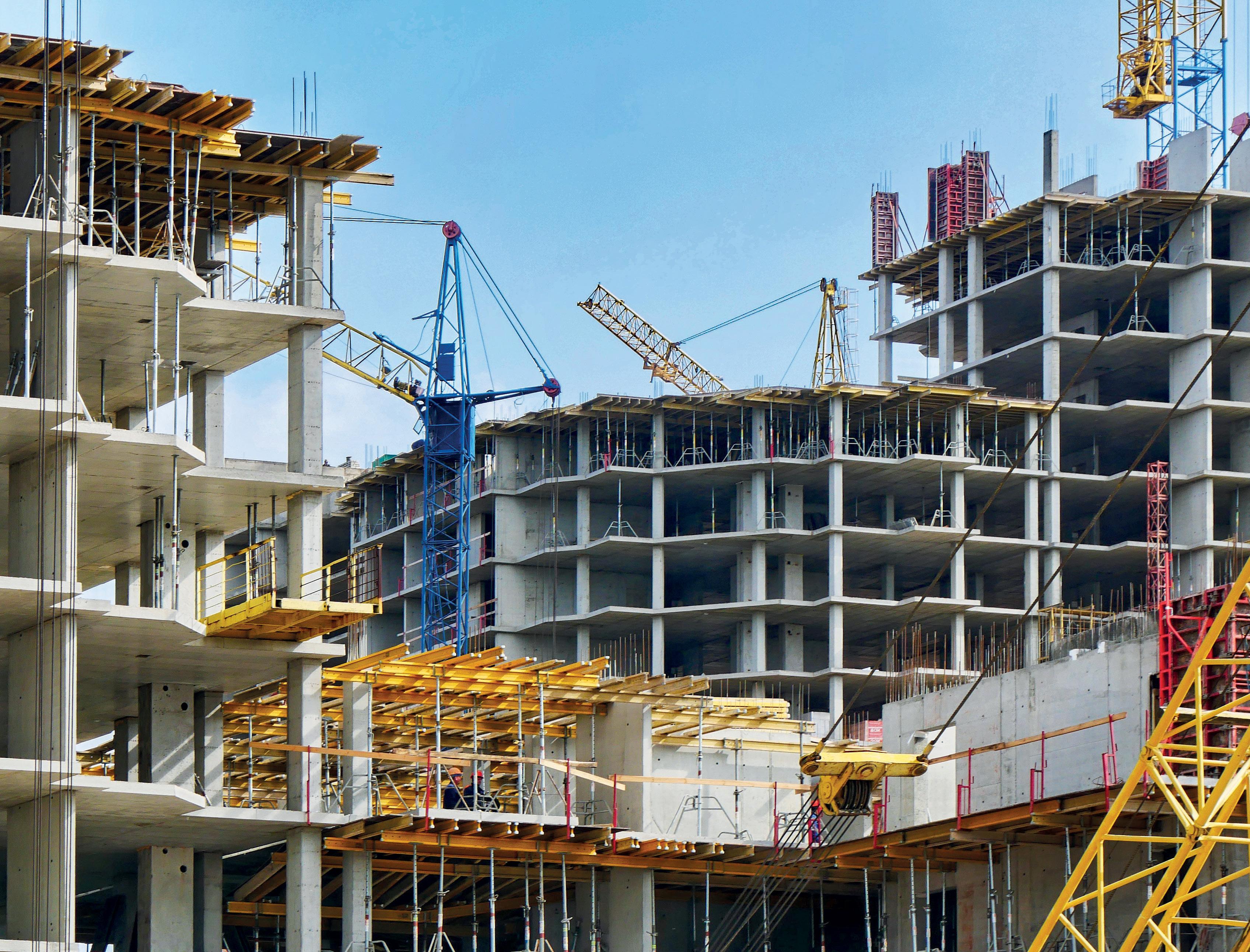
The application and use of EPCMs is growing across different industries and sectors and will likely continue growing, particularly in current market conditions says Reed Smith’s Christopher Edwards

The Engineering Procurement and Construction (EPC model) is often deployed on international construction projects. It is a tried and tested procurement model which offers many advantages to an owner, including bankability, price certainty, a turnkey solution and single point responsibility.
Whilst the EPC model remains popular amongst owners and investors, contractors are increasingly pushing for alternatives, including, the EPCM model in which the construction component of the project delivery model is replaced by a construction management firm, and thus supplies the ‘CM’ in EPCM. The EPCM model is not a new form of contract and is quite common in certain industries; however, use of the EPCM model is becoming more widespread.
The superficial similarity in the acronyms ‘EPC’ and ‘EPCM’ should not distract users from the significant difference between these two forms of procurement. An EPCM contract is fundamentally a form of construction management, and is therefore similar in many respects to a professional services agreement (as opposed to a ‘hands on tools’ construction contract).
The EPCM contractor is typically responsible for basic engineering, developing the detailed design, procurement of materials and equipment, along with the management and administration of the one or more construction contract(s). However, because EPCM contracts currently in use tend to be quite bespoke, the precise nature of these contracts can vary considerably from project to project.
One of the main benefits to an owner in using an EPCM model is pricing:
The application and use of EPCMs is growing across different industries and sectors and will likely continue growing, particularly in current market conditions.
there is no single contractor absorbing all the project risks for a higher lump sum and the owner has more control over tendering and appointing the various vendors and trade contractors, which can lead to cost savings.
Work may also commence more swiftly compared to an EPC model as work packages can be let as and when required, and design and construction can progress in parallel or simultaneously. Risk is also spread across multiple contractors, and accordingly, the owner is less exposed to the default of a single contractor.

The downside to this multi-party approach is that when things go wrong the client may have to pursue several different entities to recover its losses and it may be difficult to establish which entity is responsible for the default. Moreover, even with an EPCM contractor’s assistance, the owner will need to commit significant resources to the management of the project, which might be better invested elsewhere in the operation of its core business.
EPCM models have been adopted in the mining and metals sector for some time. They are also increasingly used in the petrochemical, power and desalination sectors, amongst others. This trend is particularly evident in the Middle East, where owners are finding it more difficult to attract qualified contractors willing to take on sole responsibility for complex projects.
Renewable projects, such as wind, solar or battery storage, also appear to be fertile ground for EPCMs. Much of the technology is new or repurposed and accordingly, contractors may be reluctant to take on single-point responsibility. These projects also typically consist of multiple work packages.

Given the risk of delayed performance and cost overruns, EPCM contracts often will include incentive provisions related to schedule and cost. The owner may benefit from including an incentive mechanism for the EPCM contractor to ensure timely completion, often taking the form of a liquidated damages provision for late performance or an early completion bonus.
Careful consideration should also be given to the dispute resolution mechanisms under an EPCM contract. In particular because of the multiple parties involved, the dispute resolution clauses should allow for disputes with the EPCM contractor to be consolidated with other related disputes (i.e. with construction works contractors) to allow for fault to be allocated appropriately and to reduce the number of separate disputes.
Conclusion
The application and use of EPCMs is growing across different industries and sectors and will likely continue
One of the main benefits to an owner in using an EPCM model is pricing: there is no single contractor absorbing all the project risks for a higher lump sum.

growing, particularly in current market conditions, where lingering concerns about disruptions in the global supply chain impacting a project’s schedule and costs are increasingly making contractors reluctant to assume the risks associated with the EPC model. Further, as we transition to new cleaner energy solutions, the manner in which those projects are delivered seem well-suited to the EPCM model. However, the use of the EPCM model will not be appropriate for all projects and circumstances.
It is important that the procurement route be considered with a clear understanding of the project objectives, scope of work, the role of each party and the contract structure as a whole. Where the EPCM model is adopted, it is crucial to appoint an EPCM contractor with a proven track record of delivering projects using the EPCM procurement method and that the owner has a competent and well-resourced in-house team.
Lauren Banner is Associate at Reed Smith. Christopher Edwards is Counsel at Reed Smith.






Saudi Arabia is not merely preserving its traditions - it is reimagining how the world connects with them says ACCIONA Living & Culture’s
Carla Prat Perxachs


Saudi Arabia is entering a transformative era, where tradition and technology converge to redefine cultural storytelling. With Vision 2030 as its guiding framework, the Kingdom is leveraging its rich heritage and cutting-edge advancements to create experiences that not only captivate audiences but also inspire them. A major milestone in this evolution is the Public Investment Fund’s (PIF) launch of QSAS, an initiative dedicated to delivering immersive heritage experiences that celebrate Saudi Arabia’s unique cultural and historical legacy.
These immersive experiences represent a bold shift, moving away from traditional modes of presentation to place audiences at the centre of the narrative. Visitors are no longer passive observers but active participants, engaging directly with the Kingdom’s stories. Through technologies like virtual reality, mixed reality, and interactive installations, QSAS enables people to explore Saudi Arabia’s past in ways that are dynamic and deeply personal.
Picture stepping into virtual recreations of Saudi Arabia’s historical landmarks, hearing the voices of legendary figures, or interacting with artifacts through holographic projections. Such experiences are not merely a vision of the future but are already beginning to take shape in cultural hubs like Riyadh, Jeddah, and AlUla. These cities, known for their thriving art and tourism scenes, are setting the stage for this next chapter of cultural engagement.
Saudi artist Safeya Binzagr’s legacy offers an ideal foundation for reimagining the Kingdom’s heritage through immersive art. Her vibrant portrayals of Hejazi culture and the disappearing traditions of rural Saudi Arabia resonate with authenticity and detail. Her work -
From AI-driven storytelling to holographic performances and interactive environments, these projects can transform how audiences engage with culture.

documenting daily life, traditional dress, and historic architecture - could serve as a blueprint for innovation. Imagine a digital recreation of a traditional Saudi village based on her paintings, where visitors encounter bustling markets, hear the melodies of traditional instruments, and engage with holographic storytellers who bring customs and history to life.
Immersive art has proven its potential as more than entertainment when executed thoughtfully. A standout example is the Life and Work of Frida Kahlo exhibition. As the only immersive experience dedicated to a female artist on this scale, it has become one of the most celebrated and awarded exhibitions of its kind. By integrating her iconic works with elements of her personal history, the exhibit invited audiences to walk through her struggles and triumphs, creating an emotional and educational experience through digital recreations, soundscapes, and interactive displays. Saudi Arabia could adopt a similar approach, honoring its cultural icons while leveraging technology to deepen its connection with audiences.
When projects are rooted in thoughtful curation - like Kahlo’s or David Hockney’s - immersive art transforms into meaningful storytelling. It captures the spirit of its subjects while engaging visitors in ways traditional formats cannot. Saudi Arabia’s cultural scene has the potential to elevate this model by infusing local authenticity with global expertise.
The rise of immersive art in Saudi Arabia is not only a cultural milestone but also a significant economic opportunity. As part of Vision 2030’s goals to diversify the economy, cultural tourism is playing an increasingly central role.
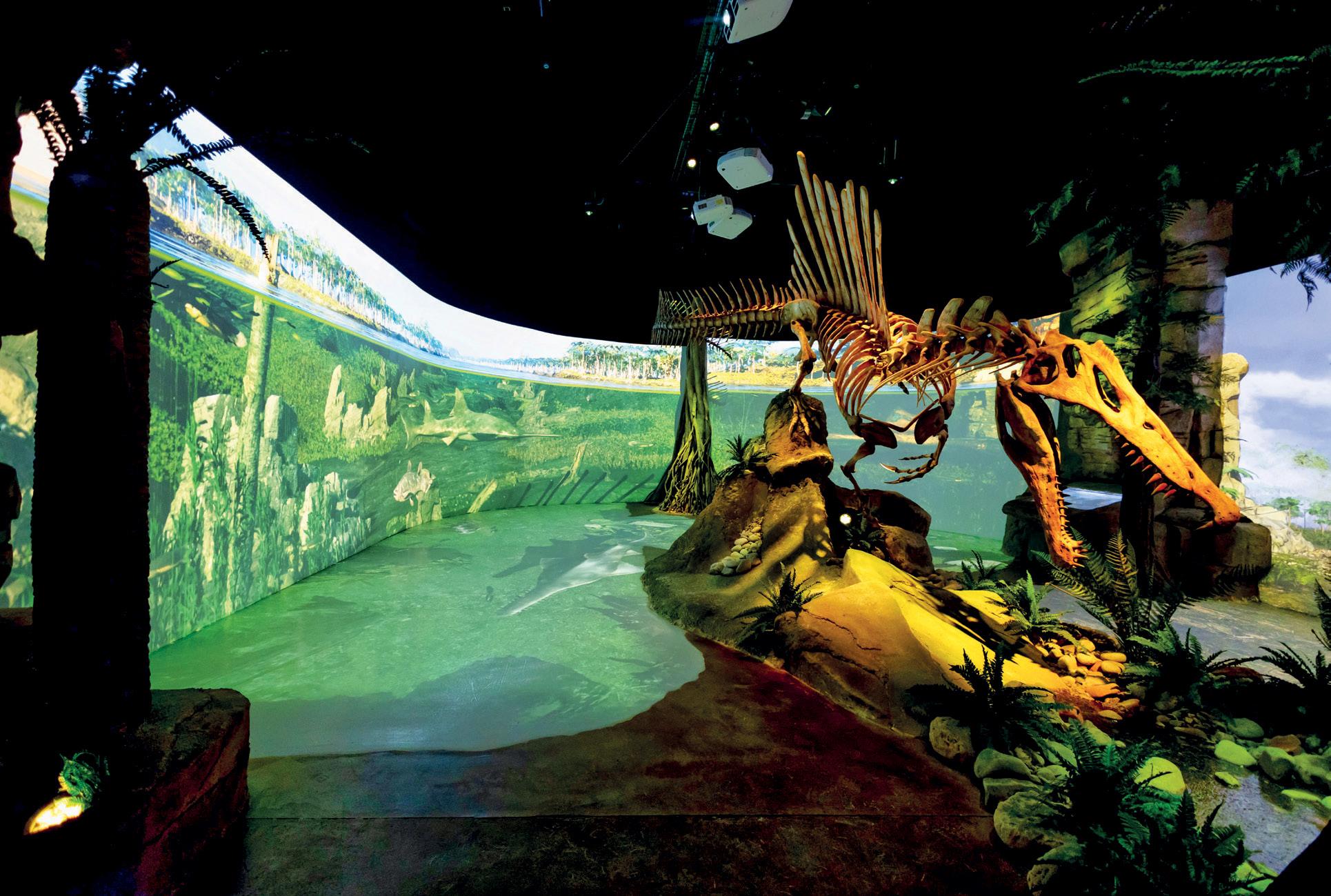
Projects like QSAS are anticipated to create over 11,000 direct and indirect jobs by 2030, fostering a new creative economy that positions Saudi Arabia as a leader in global cultural innovation.
Collaboration will be key to realising this vision. Local artists, historians, and technologists must work alongside international experts to ensure these projects blend cutting-edge technology with Saudi Arabia’s rich heritage. Partnerships with global firms can bring advanced technical capabilities, while Saudi creatives provide the cultural depth that makes these experiences resonate.
The possibilities for immersive experiences in Saudi Arabia are vast. From AI-driven storytelling to holographic performances and interactive environments, these projects can
As part of Vision 2030’s goals to diversify the economy, cultural tourism is playing an increasingly central role. Projects like QSAS are anticipated to create over 11,000 direct and indirect jobs by 2030.
transform how audiences engage with culture. More importantly, they offer a platform for showcasing Saudi talent on a global stage, highlighting the Kingdom’s heritage while shaping its future.
Saudi Arabia is not merely preserving its traditions - it is reimagining how the world connects with them. By combining its cultural richness with technological innovation, the Kingdom is crafting immersive journeys that engage the senses, evoke emotion, and create lasting memories. Through these efforts, Saudi Arabia is asserting itself as a global leader in cultural storytelling, bridging its past and future in ways that are both inspiring and groundbreaking.
Carla Prat Perxachs is Creative Director at ACCIONA Living & Culture.

As general agent for Bahri Line (one of the Business Units of the Saudi Arabian National Shipping Company) in Northern Europe and Scandinavia TO GROUP offers a wide range of cargo opportunities on six state-of-the-art vessels. With two trades from the USA (Global Service) and Europe to Far East (via Mediterranean Sea, Middle East, Asia, India and vice versa) you can reach your growth markets even better and faster from the Continent.
Each Ro/Con vessel is equipped with two heavy lift cranes and is perfectly designed to carry a wide range of products, from cars and commercial vehicles, construction materials, various IMO Classes, mining and agriculture machinery to various breakbulk products and containers.
Take a look at our schedules on our website and don‘t hesitate to make an inquiry!

Through innovation, collaboration, and a commitment to long-term value, the Middle East is set to redefine what’s possible in construction says AESG’s Daniel King

The GCC construction sector is expected to grow by a CAGR of 5% and will exceed US $226bn by the end of the decade.
The GCC construction sector continues to experience a remarkable boom, with iconic projects redefining skylines and ambitious visions transforming urban landscapes. From its impressive US $177bn value in 2025, it is projected to growth at a remarkably healthy CAGR of 5% over the next five years, exceeding $226bn by the end of the decade.
Yet, even in this era of growth, budgets are not infinite. In fact, the need for disciplined cost control is more critical than ever to ensure that the sector’s exuberance translates into tangible, sustainable outcomes.
Therefore, at this, the start of 2025, cost management is poised to play a pivotal role in shaping the success of construction projects across the Middle East. Here are five trends that will significantly impact this domain:
Digitalisation is already revolutionising how projects are planned, managed, and executed in the region. Building Information Modelling (BIM), for instance, has seen widespread adoption, enabling stakeholders to visualise projects in their entirety before a single brick is laid.
As BIM technology evolves, the integration of artificial intelligence (AI) could soon allow teams to predict cost
overruns by analysing historical data and real-time conditions. Cloud-based BIM platforms are further enhancing collaboration among architects, contractors, and project managers by providing instant updates on the cost implications of design decisions.
Beyond BIM, digital twins are steadily gaining traction, offering real-time monitoring of construction projects. These virtual replicas allow stakeholders to track performance metrics and costs, enabling timely interventions to prevent budget overruns. Machine learning is also poised to modernise budgeting, with algorithms forecasting requirements based on historical data. Automated reconciliation tools, in turn, could seamlessly track expenditures against planned budgets, reducing manual errors and saving valuable time.
Equally transformative is the region’s increasing focus on sustainability. Yes, incorporating green building practices often involves higher upfront costs, as seen in the use of low-carbon concrete or the installation of renewable energy systems. However, as demand for ecofriendly materials grows, economies of scale and technological advancements are starting to drive prices down.
Additionally, in hosting two of the last three COP editions, the MENA region has signaled its strong commitment to sustainability. Governments are increasingly offering incentives such as tax breaks and renewable energy subsidies to offset the initial costs of sustainable construction.
Simultaneously, investments in green certifications like LEED and BREEAM are also becoming more common. These certifications not only enhance a building’s market value but also reduce operational costs, making them an attractive proposition for developers. For example, Dubai’s push toward Net Zero buildings by 2050 reflects a broader regional shift towards sustainability, and cost management strategies will have to evolve to align with these goals.
Modular methods are rapidly coming of age in the Middle East. These techniques shift much of the construction process to controlled factory environments, significantly reducing on-site labour costs and inefficiencies. Faster project completion times also mean lower indirect costs, such as reduced site overheads and financing expenses.
However, modular construction isn’t without its challenges. To fully realise its cost benefits, meticulous planning is required to manage logistics and upfront investments effectively. In fact, if the sprawling factories required to effectively build modular units hope to get the green light, teams of cost management professionals would first have to conduct comprehensive feasibility studies, evaluate long-term return on investment, and ensure alignment with both project budgets and regulatory requirements. These analyses would need to account for site selection, transportation
Through innovation, collaboration, and a commitment to longterm value, the Middle East is set to redefine what’s possible in construction.

logistics, supply chain reliability, and environmental compliance to justify the substantial initial capital outlay.
While in the region, contracts have traditionally been characterised by rigid, hierarchical structures, we are starting to see this rapidly change, replaced instead by collaborative contracting models. Of these, approaches such as Integrated Project Delivery (IPD) are helping align the interests of all stakeholders by linking incentives to performance metrics such as budget, schedule, and quality.
The transition, however, requires more than just updated contract terms- it demands a cultural shift. The adoption of digital tools like BIM, cloud-based project management platforms, and real-time data-sharing systems is helping to facilitate this change. Contracts are increasingly focusing on outcomes, distributing risks based on measurable results such as project milestones or quality benchmarks.
Blockchain technology could further revolutionise this space. Smart contracts offer a level of transparency and automation that reduces disputes and ensures accountability. With the UAE having launched its Blockchain Strategy as far back as 2018, there is already talent available in the market to develop the blockchain-based based solutions that could offer effective risk-sharing mechanisms, creating a more equitable framework for all parties involved.
Traditionally, cost management has focused primarily on initial construction expenses. But as the function matures, there is growing recognition of the need to consider the total cost of ownership, including operating, maintenance, and end-of-life expenses. It helps of course


MODULAR CONSTRUCTION
To fully realise modular construction’s cost benefits, meticulous planning is required to manage logistics and upfront investments effectively.
that policies and certifications increasingly mandate Life Cycle Cost Analysis (LCCA) to ensure that projects align with sustainability and efficiency goals. Here too, BIM has a role to play as the effective implementation of LCCA relies on advanced digital tools, such as BIM and simulation software, to model and predict lifecycle performance accurately. But software alone isn’t sufficient – a mindset shift is also crucial. Developers and clients must move beyond prioritising immediate cost savings to embrace the long-term benefits of higher upfront investments.
With careful planning and strategic adoption of these trends, organisations can not only manage costs effectively, but also position themselves as leaders in one of the world’s most vibrant construction markets. Through innovation, collaboration, and a commitment to long-term value, the Middle East is set to redefine what’s possible in construction. And in this transformative journey, cost management will remain at the heart of turning ambitious visions into enduring realities.
Daniel King is Regional Director – Cost Management at AESG.
UAE-based developer Al Hamra has completed the construction and handover of its Al Hamra Marina Residences project, which is billed as a premium residential precinct in its Al Hamra Village community in Ras Al Khaimah.
Comprising the M-I East and M-I West blocks, this milestone represents the first handover of projects launched as part of Al Hamra’s ambitious five-year strategy, marking a significant step in the expansion of the Al Hamra community, the firm explained.
The handover of Falcon Island, another landmark project in the city under the five-year roadmap, is set to take place in 2026, the company revealed in its statement.
Al Hamra Marina Residences offers 318 apartments, ranging

from studios to one- and twobedroom units, each thoughtfully created with modern living in mind. These residences combine stylish aesthetics with functionality, creating the ideal home for individuals and families seeking both comfort and convenience.
Al Hamra Marina Residences aims to offer residents seamless access to world-class amenities, including a fully equipped gym, swimming pools, retail outlets, dining venues, and extensive sporting, leisure & entertainment facilities. Designed to provide a well-rounded lifestyle experience, this precinct exemplifies Al Hamra’s holistic approach to premium real estate developments.
Benoy Kurien, Group CEO of Al Hamra said, “We are thrilled
to handover Al Hamra Marina Residences, a development that redefines premium living in Ras Al Khaimah. Launched as part of Al Hamra’s strategic fiveyear growth plan, the project’s completion is a significant achievement and a testament to the diligent application and 100% effort from our entire team.”
He added, “We are committed to innovating across our premium lifestyle portfolio, giving us a competitive edge in the market, and continue to push the envelope in making Ras Al Khaimah the best place in which to live, work, thrive and invest. We are confident that Al Hamra Marina Residences will appeal to those looking for a modern lifestyle in one of the UAE’s most dynamic locations.”

